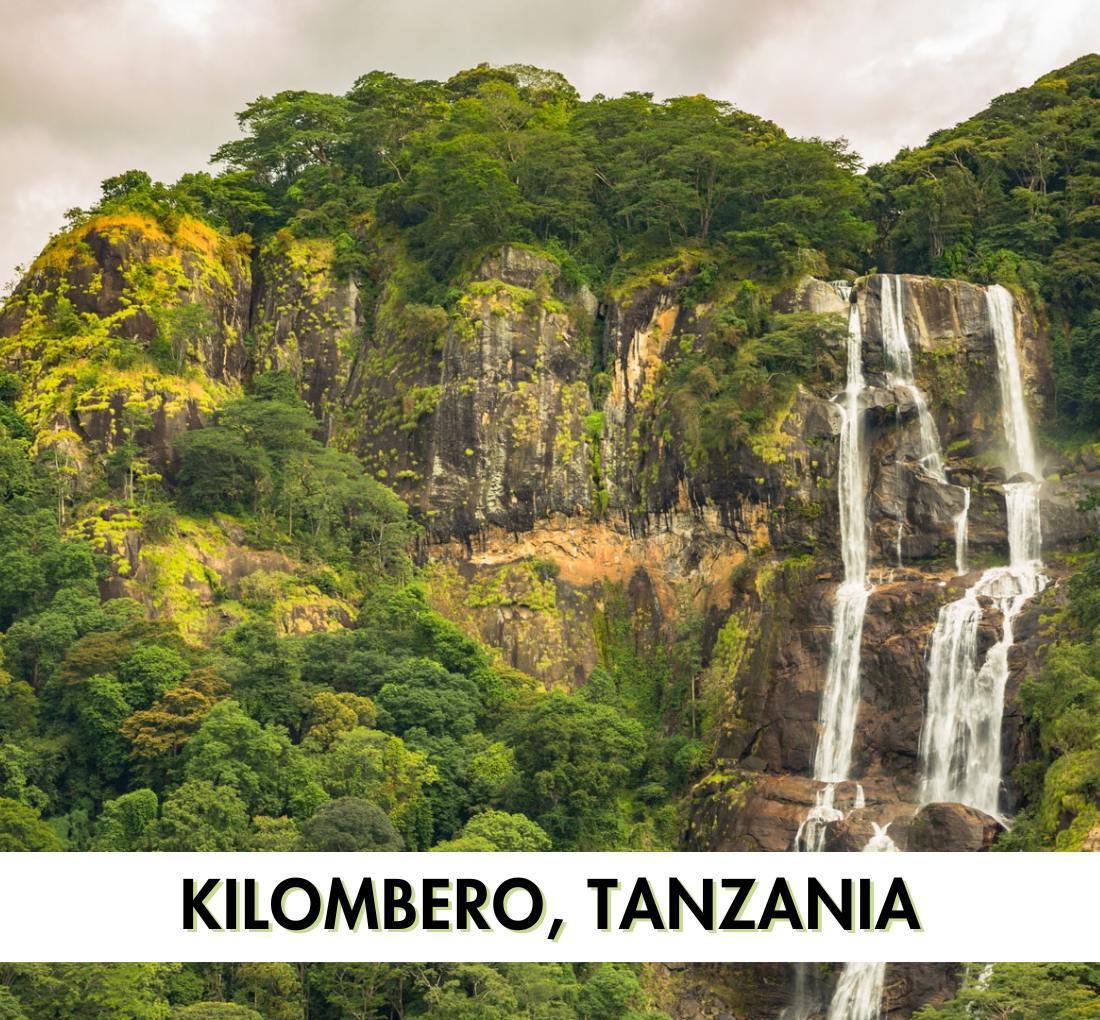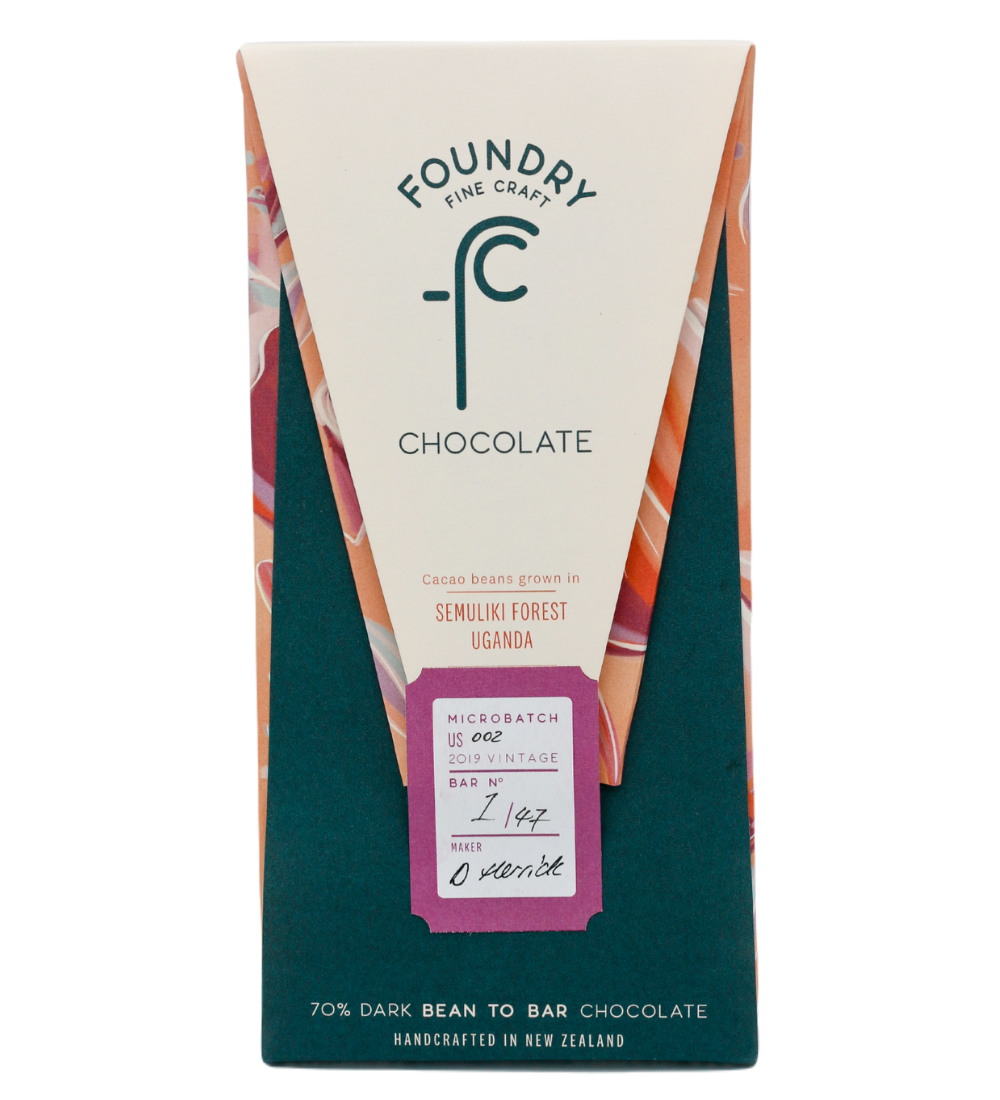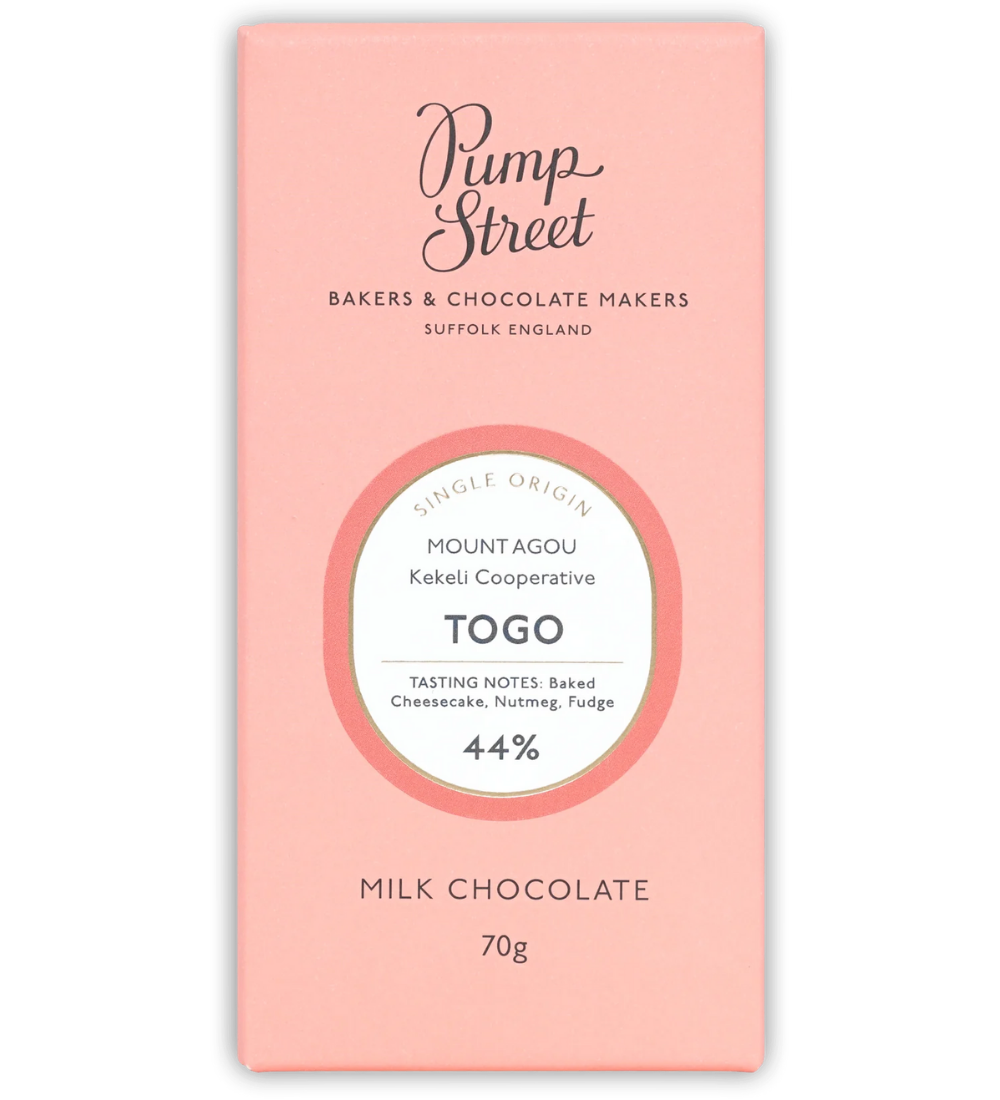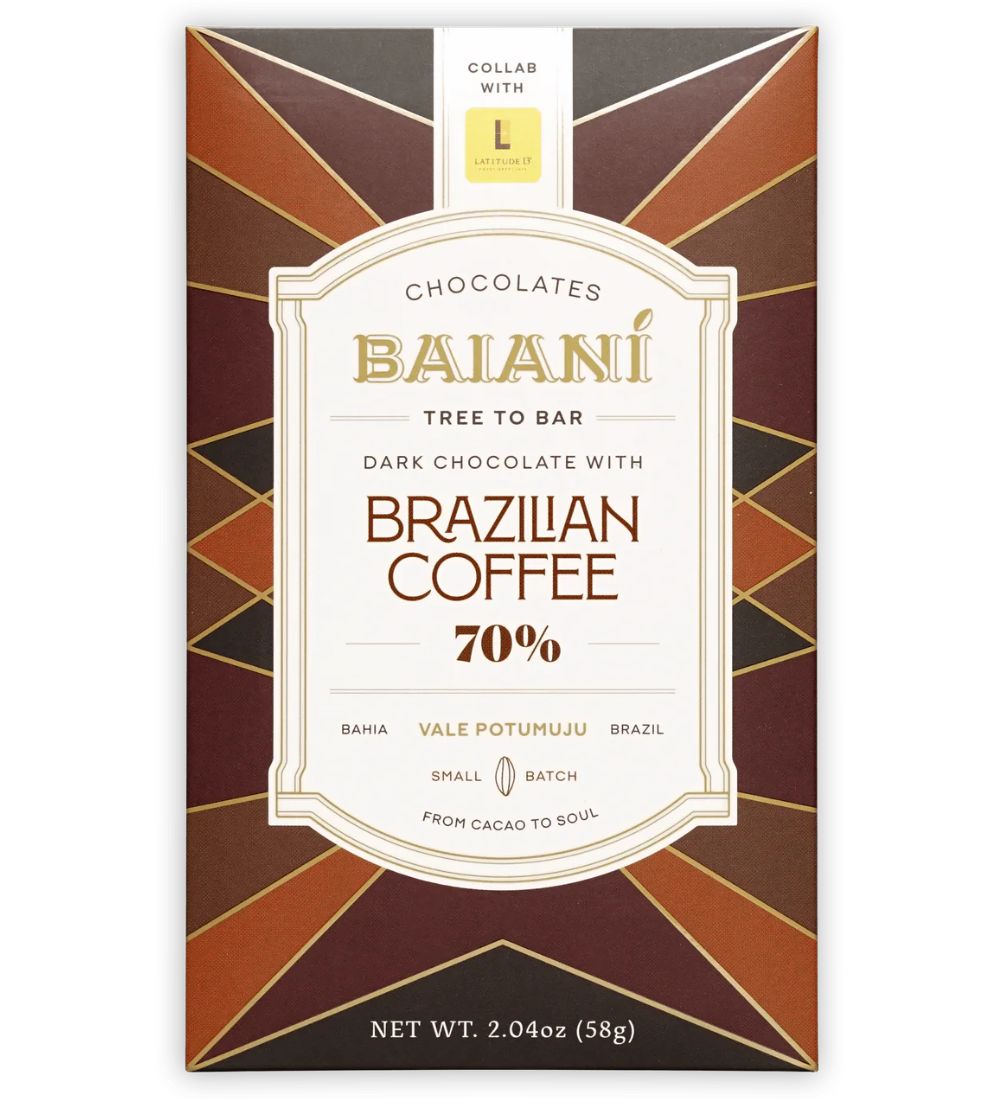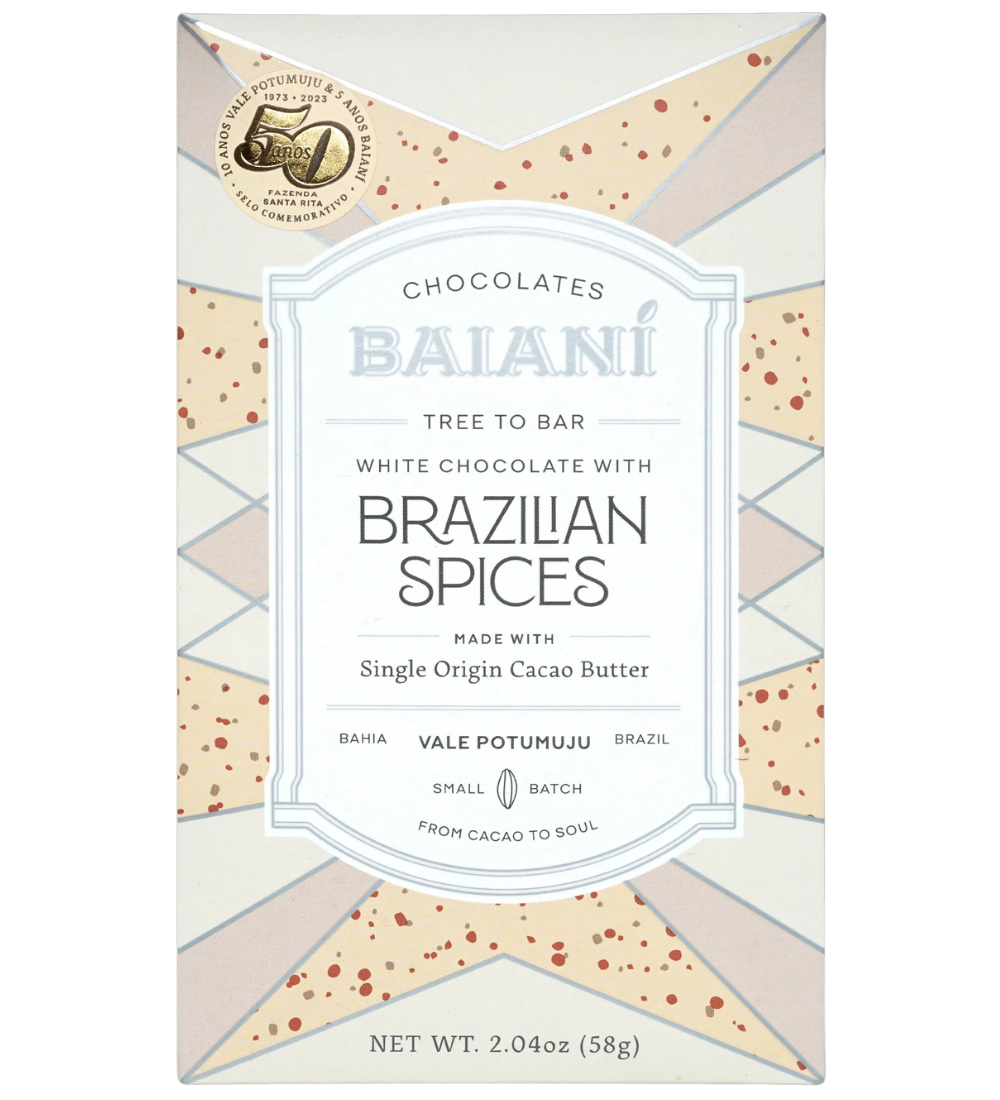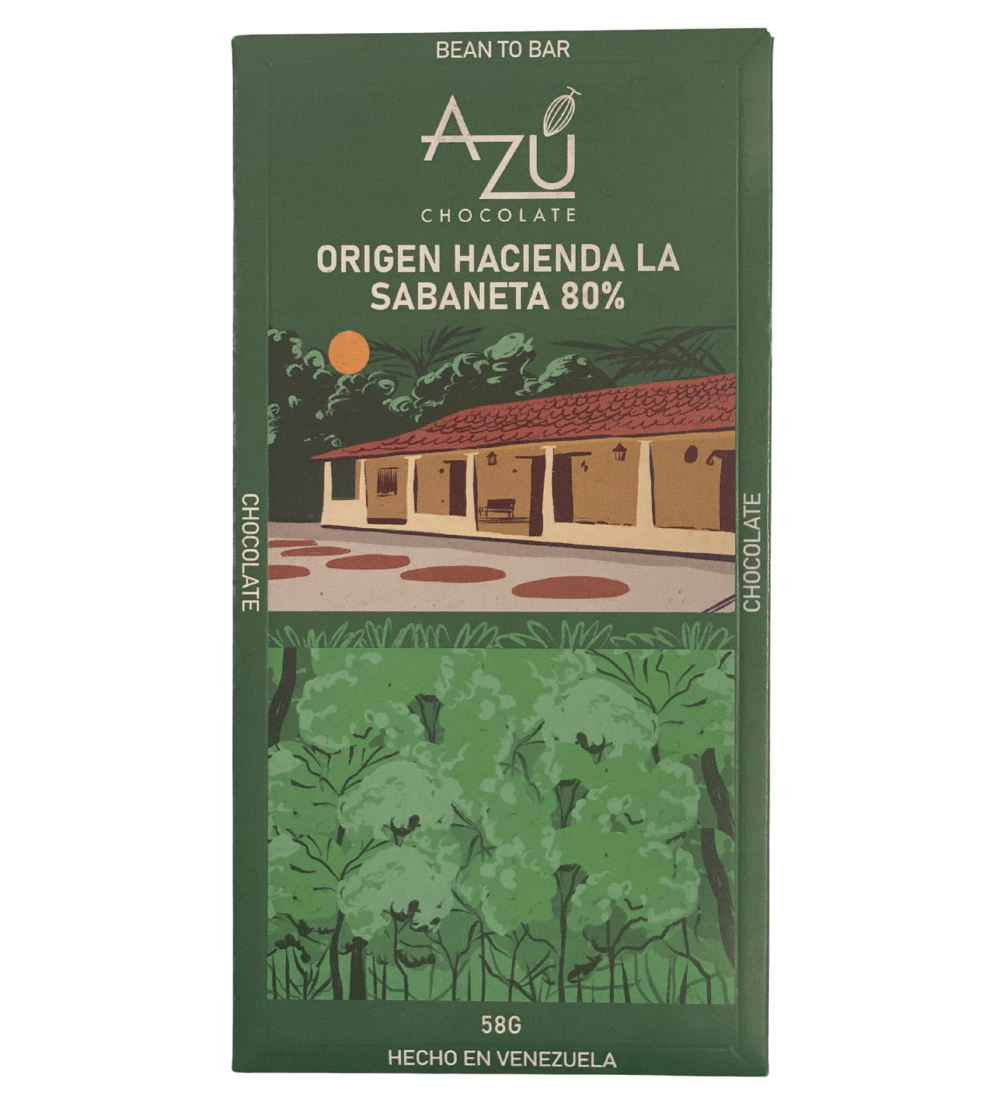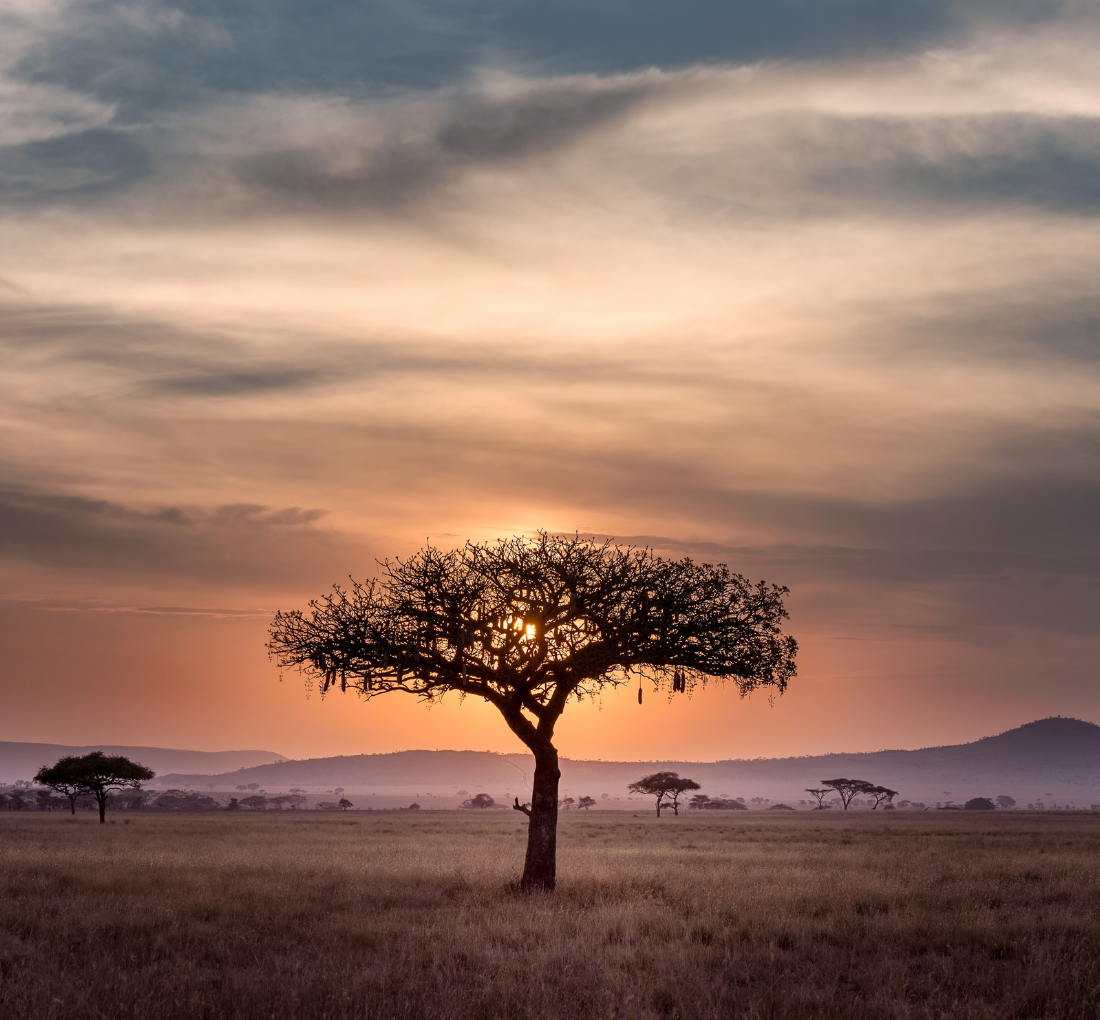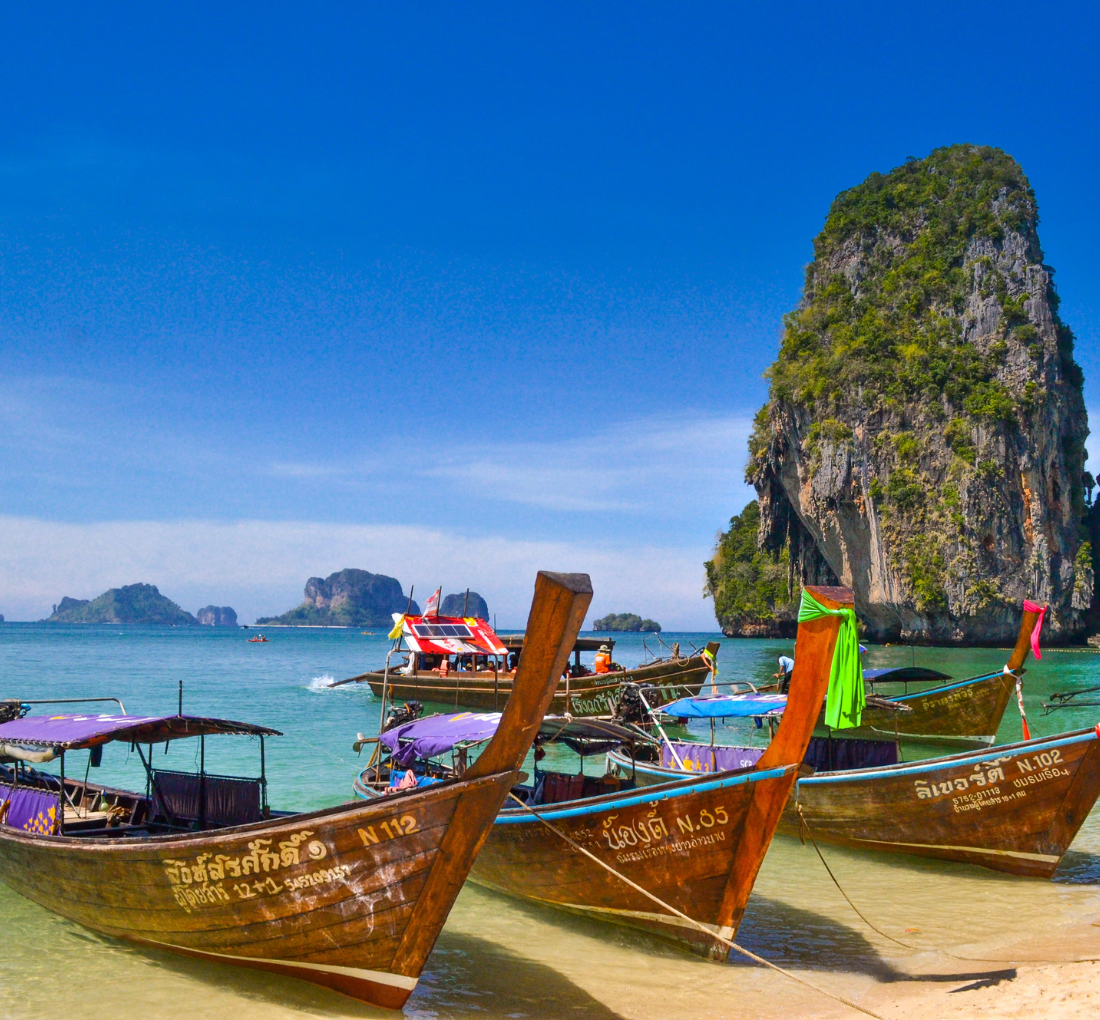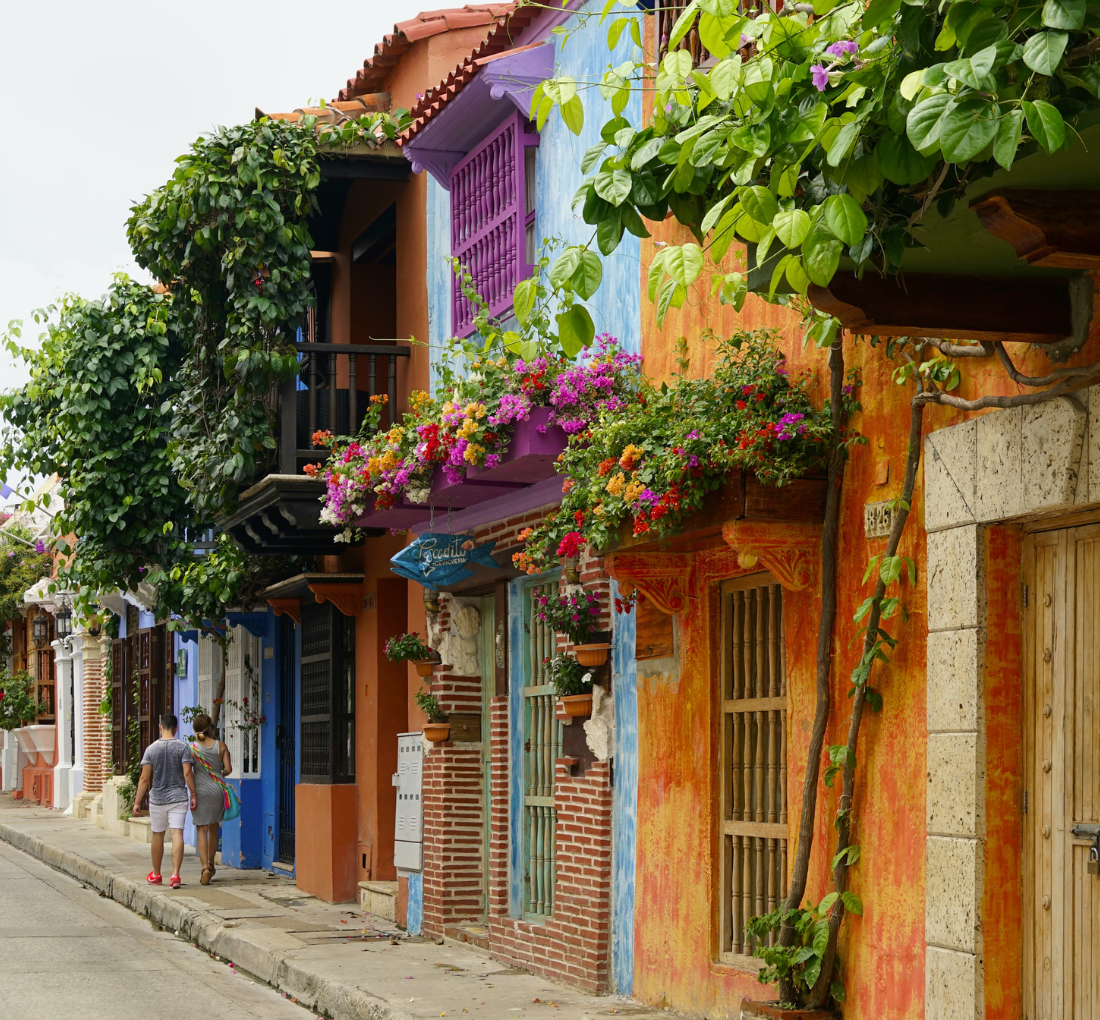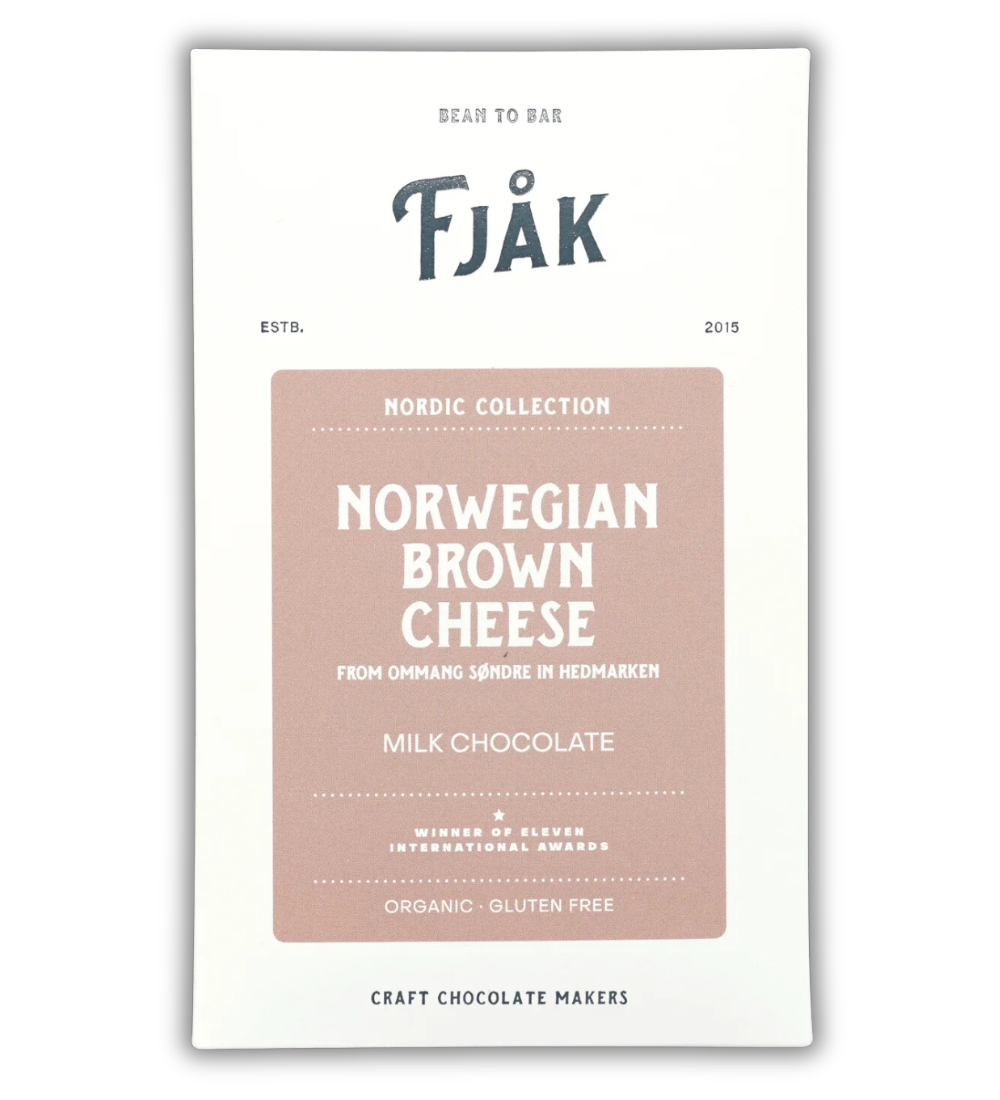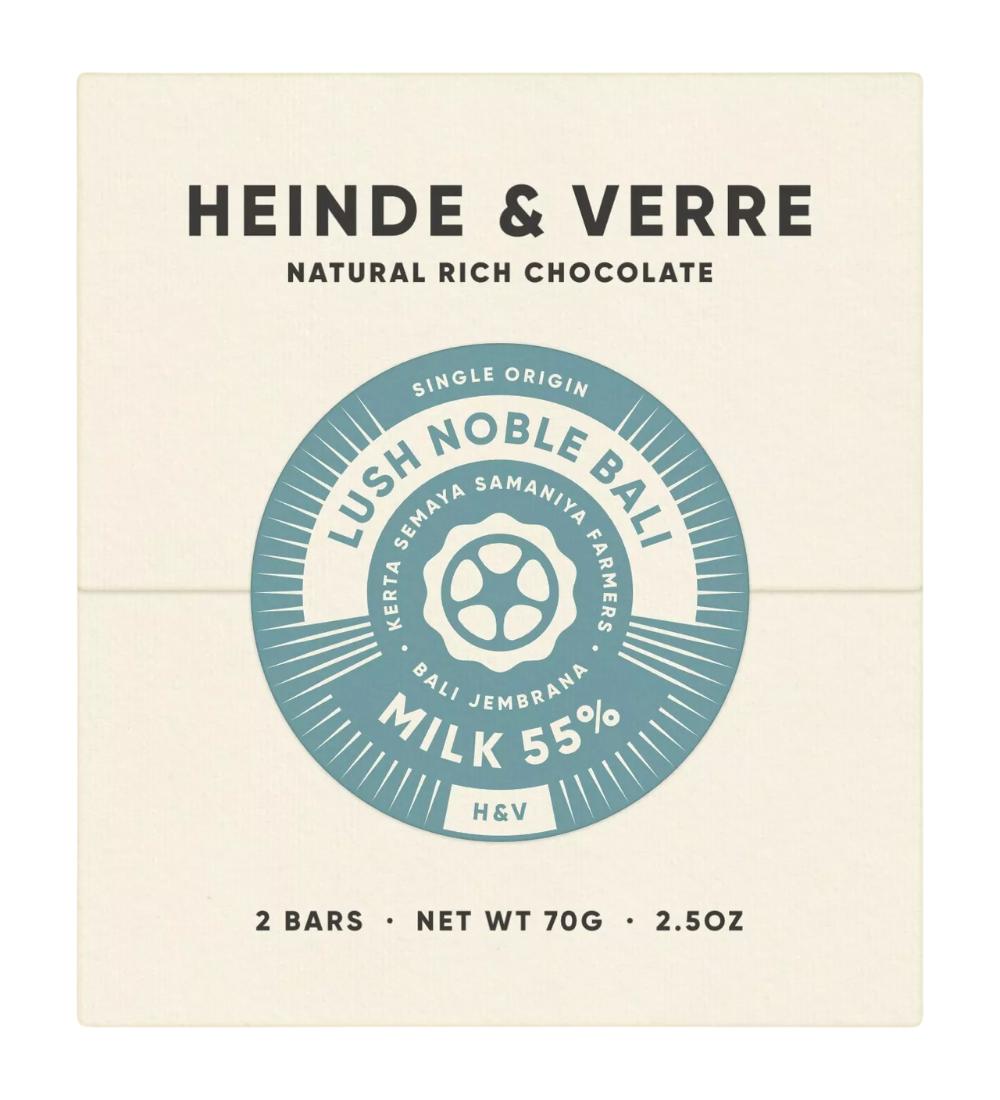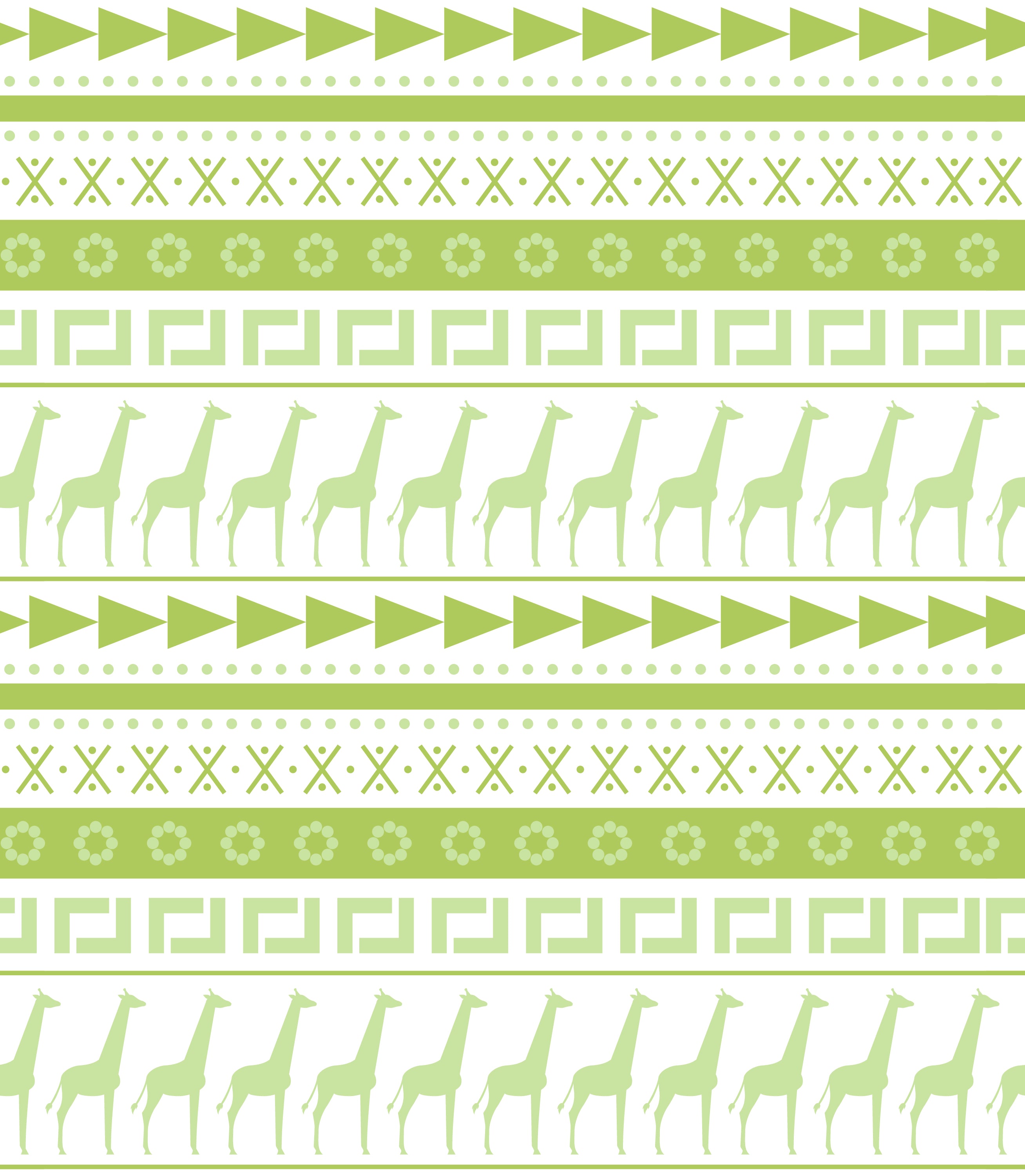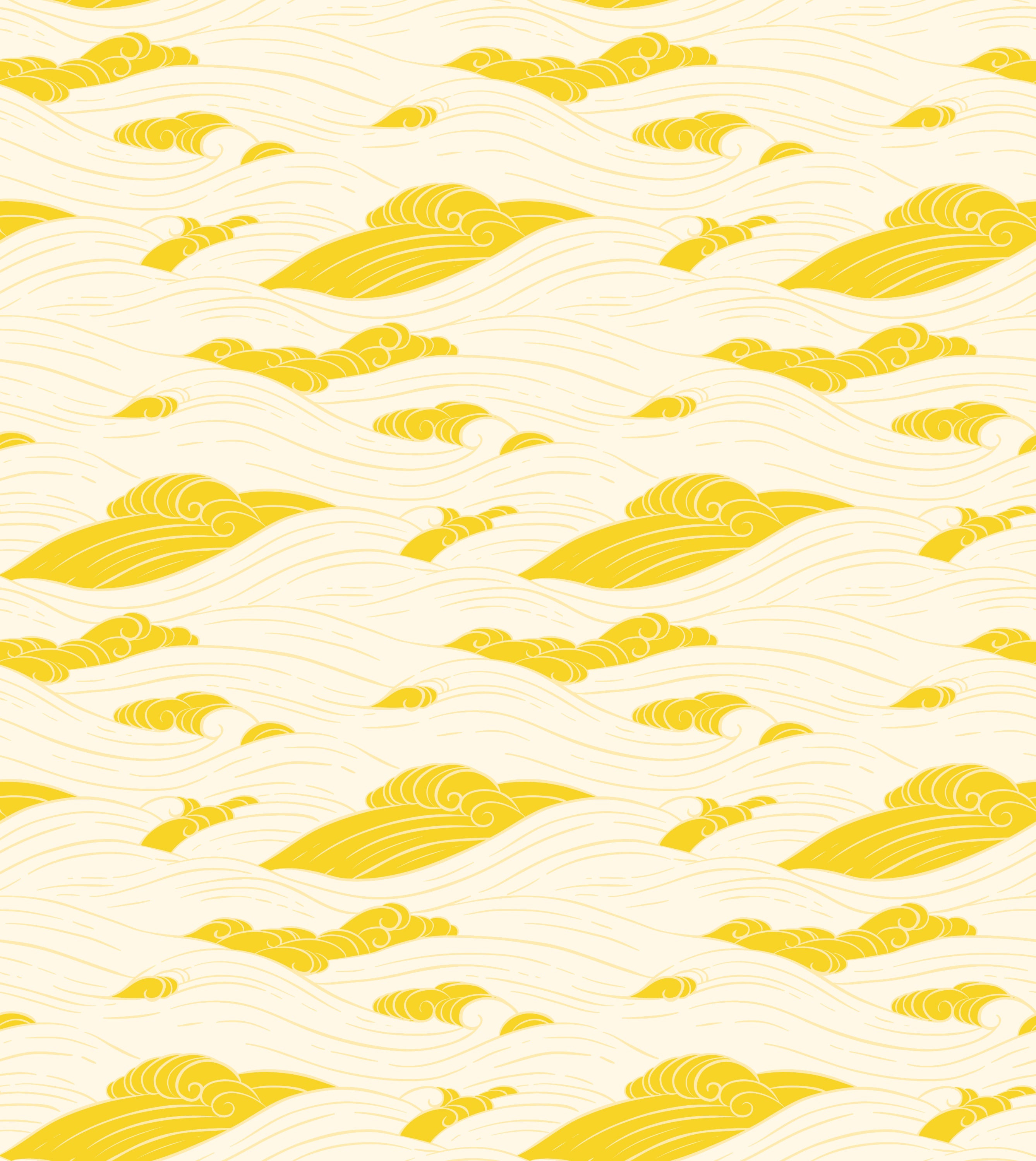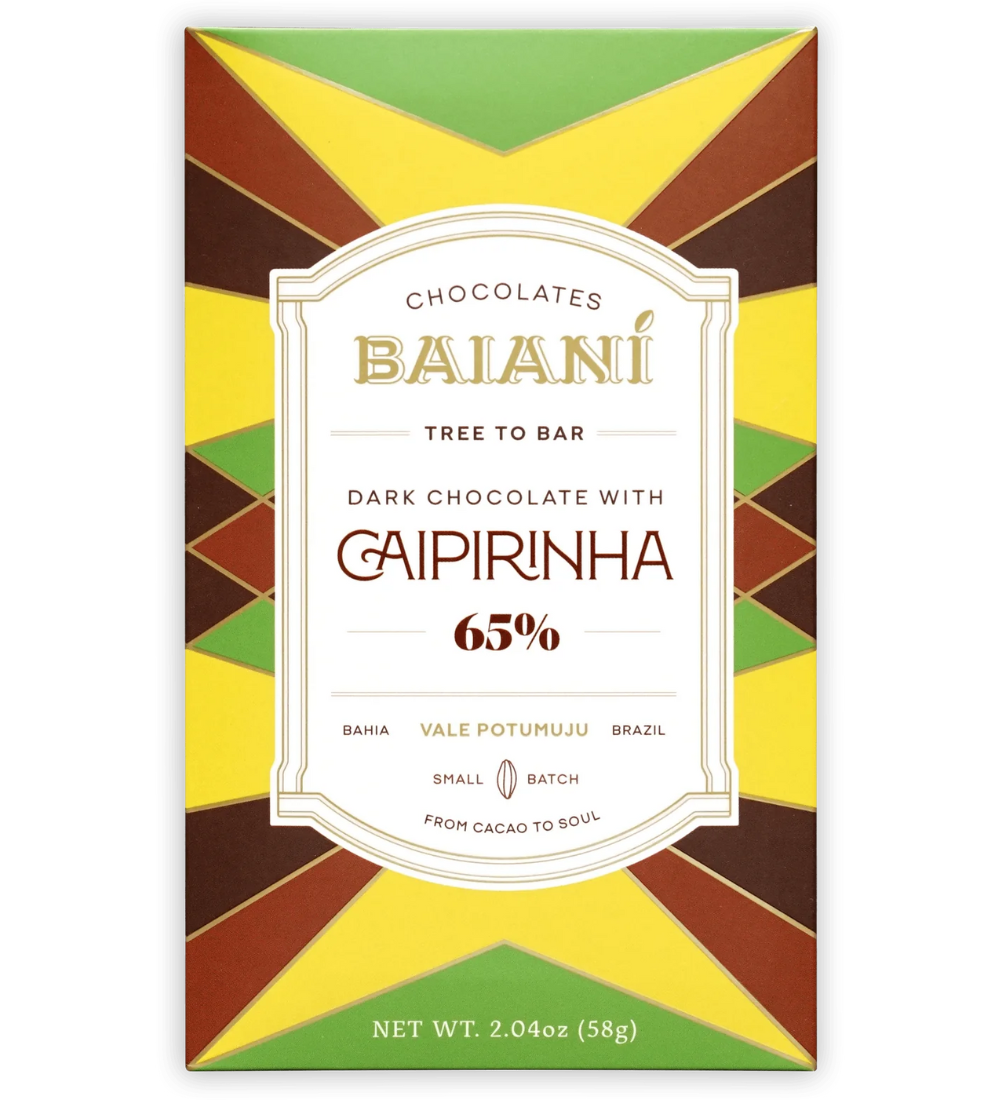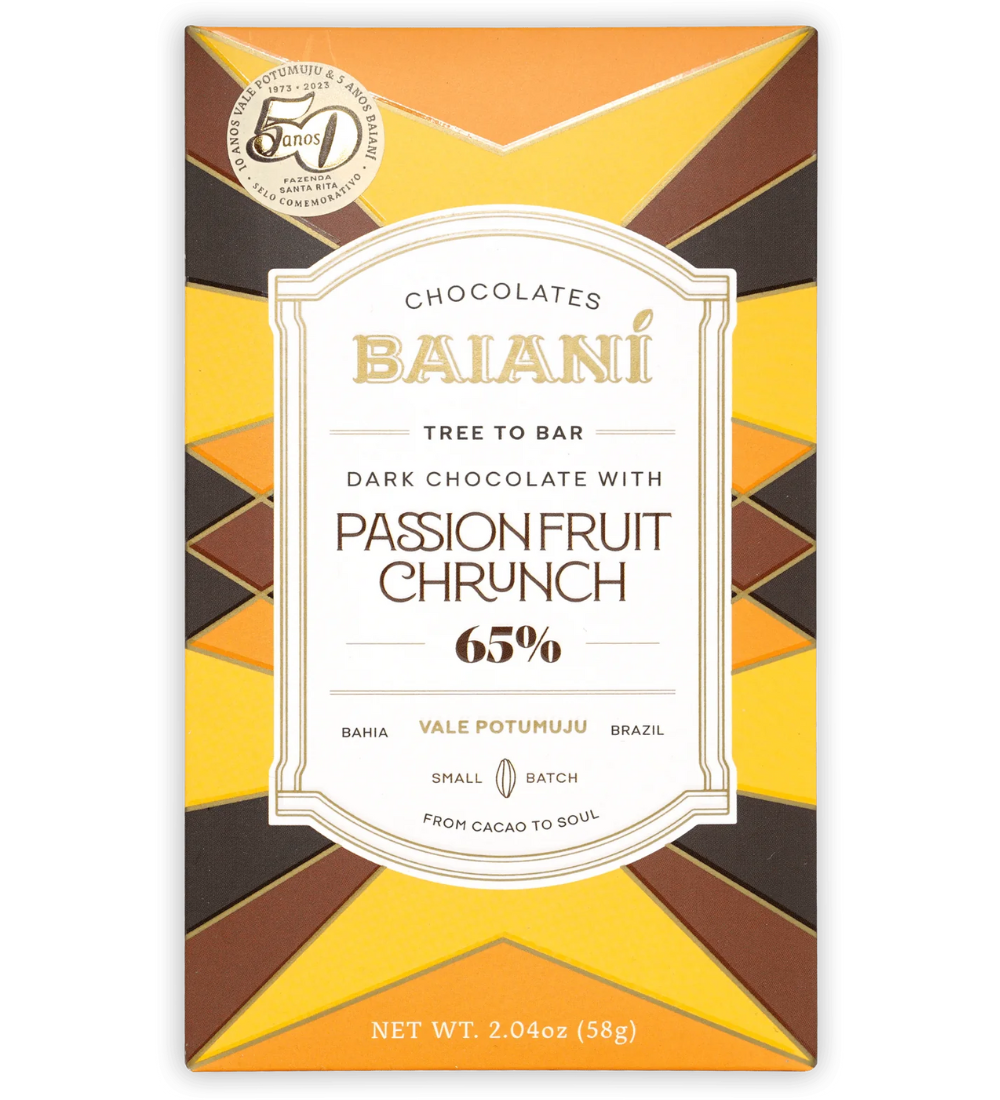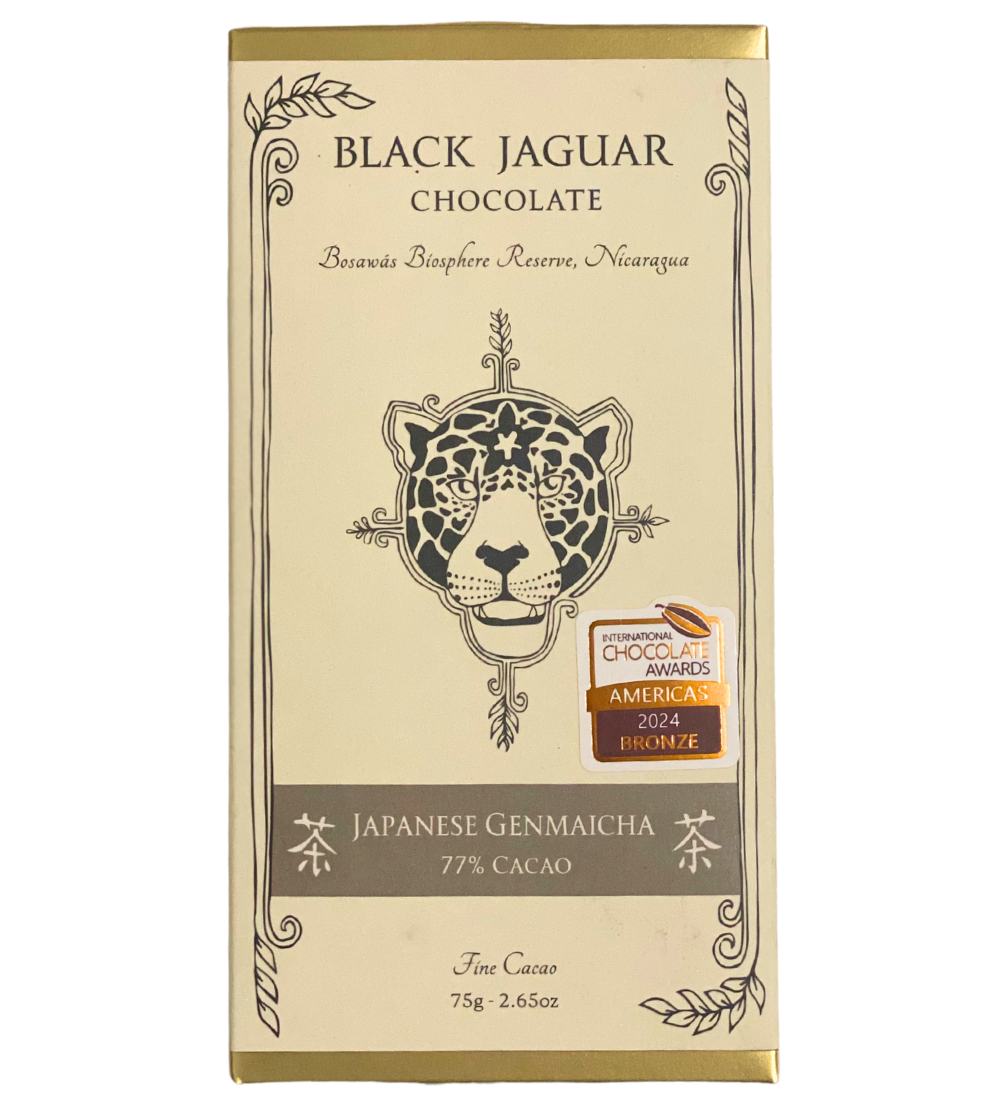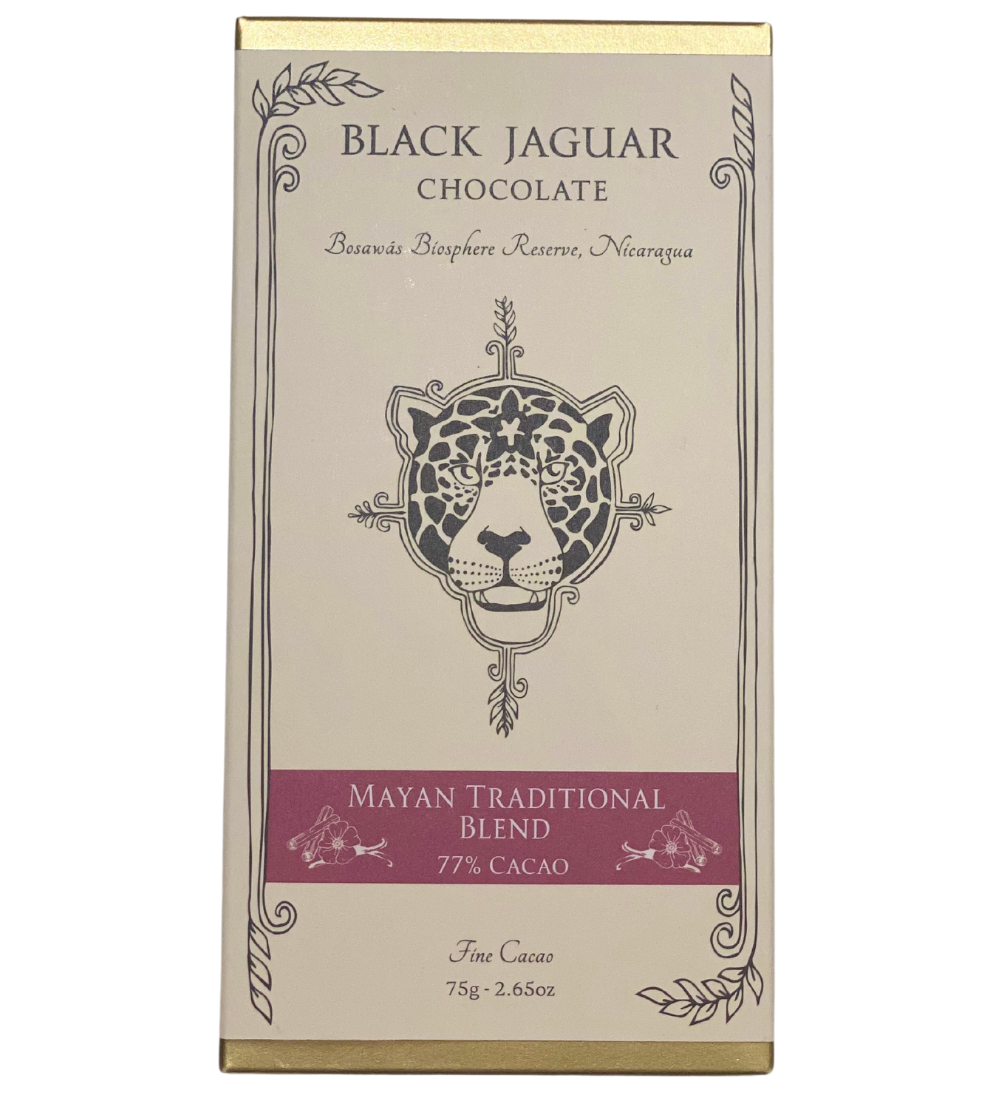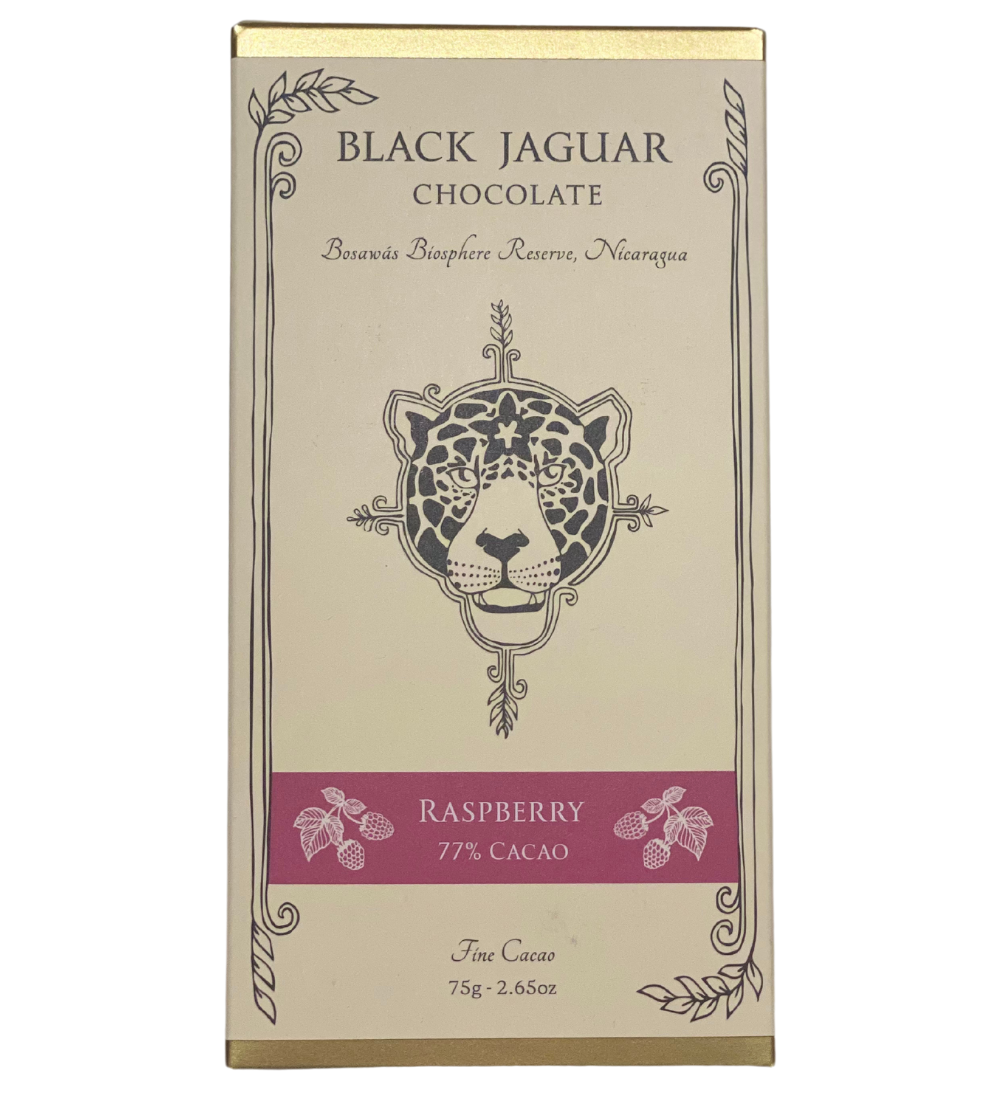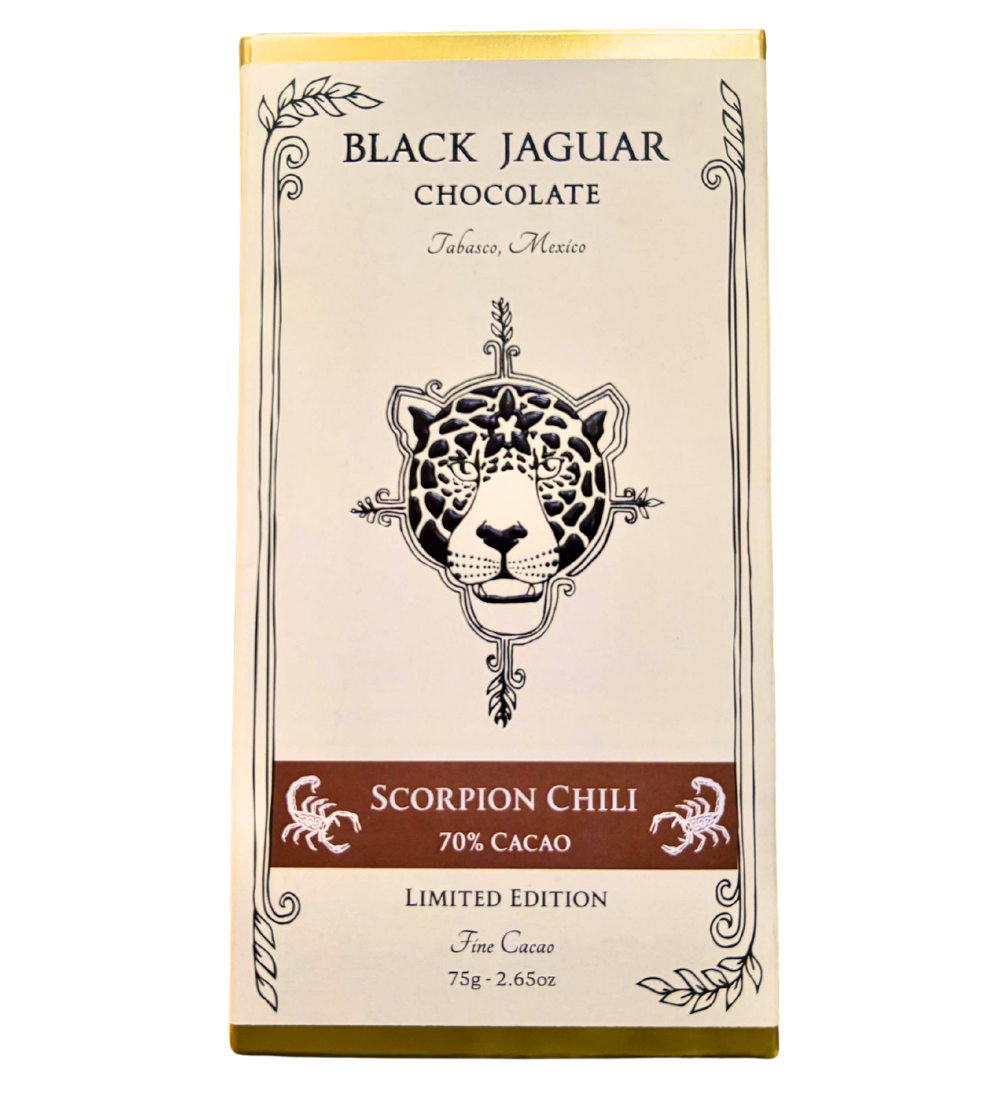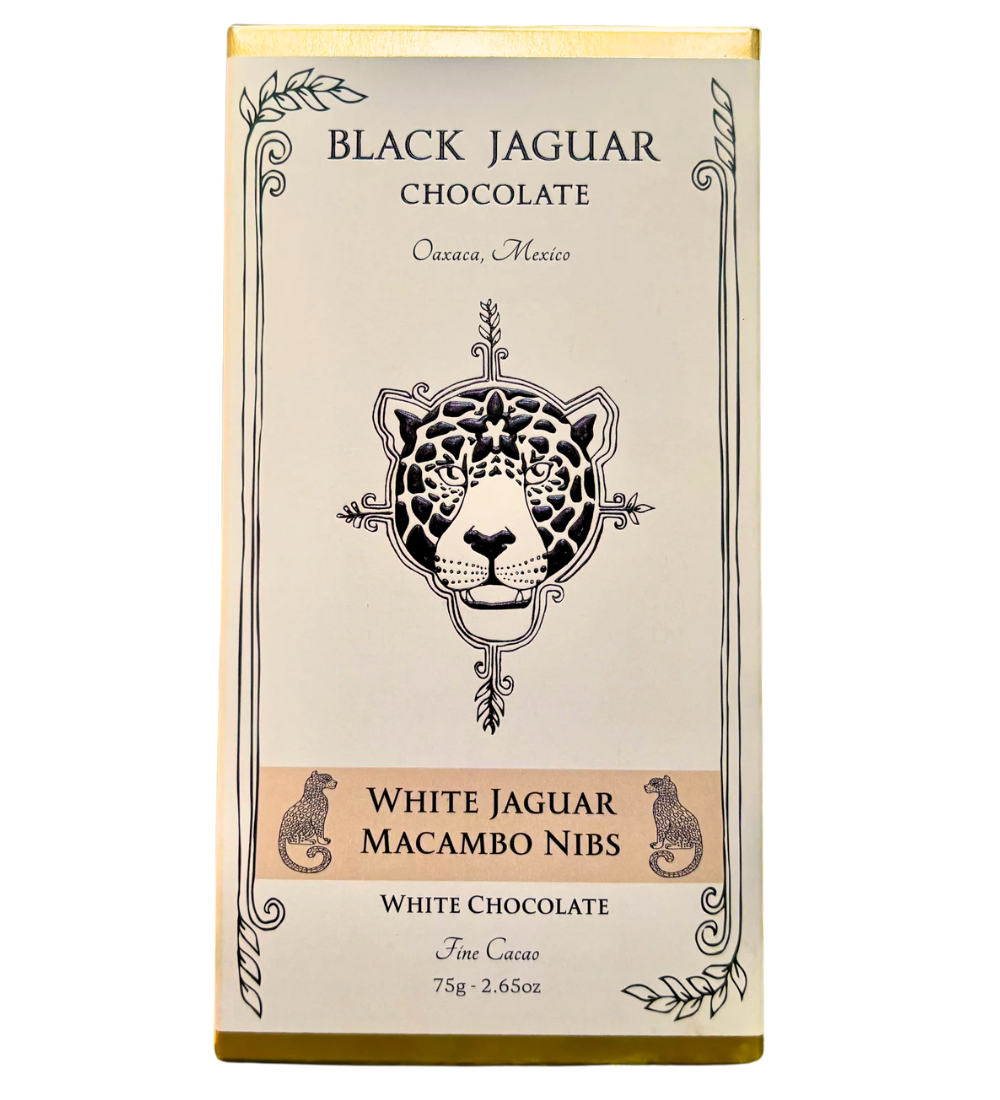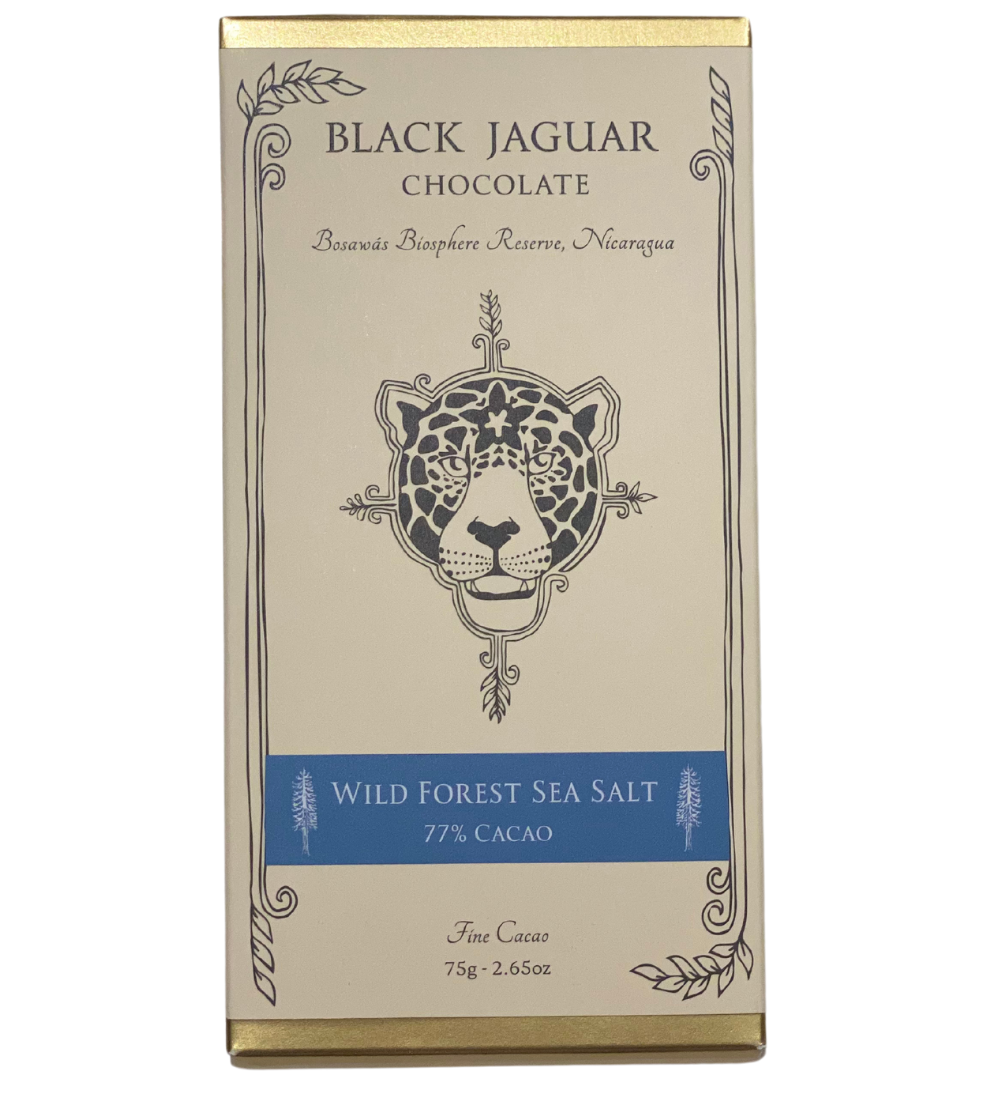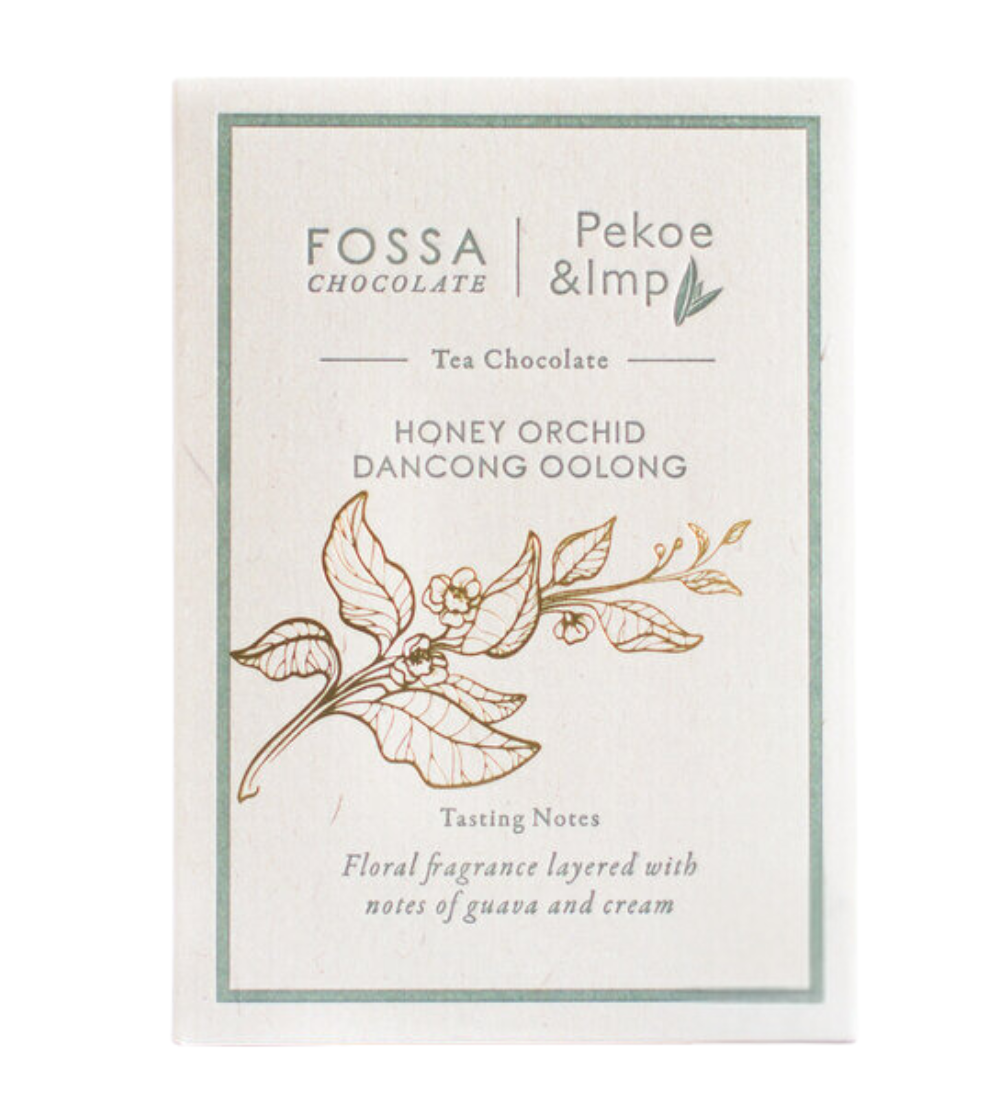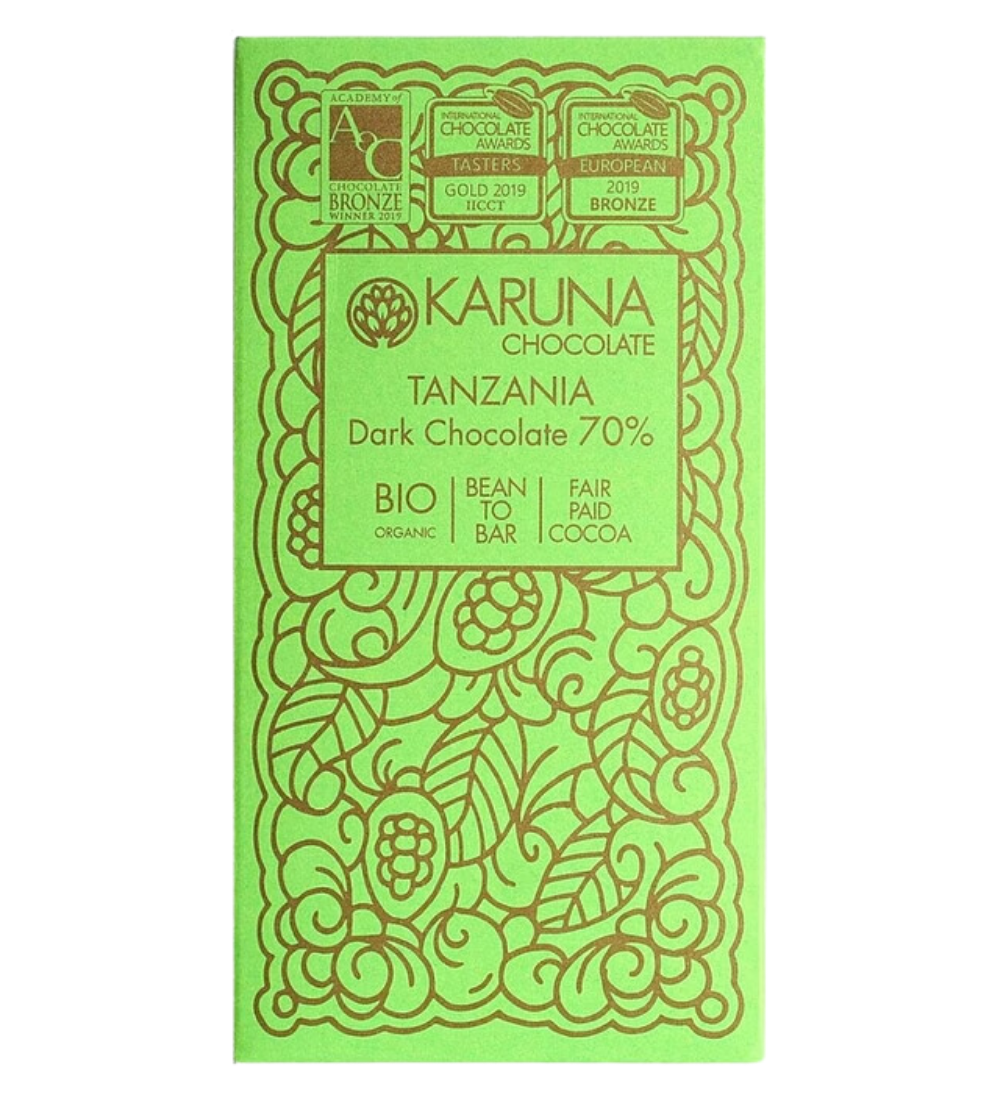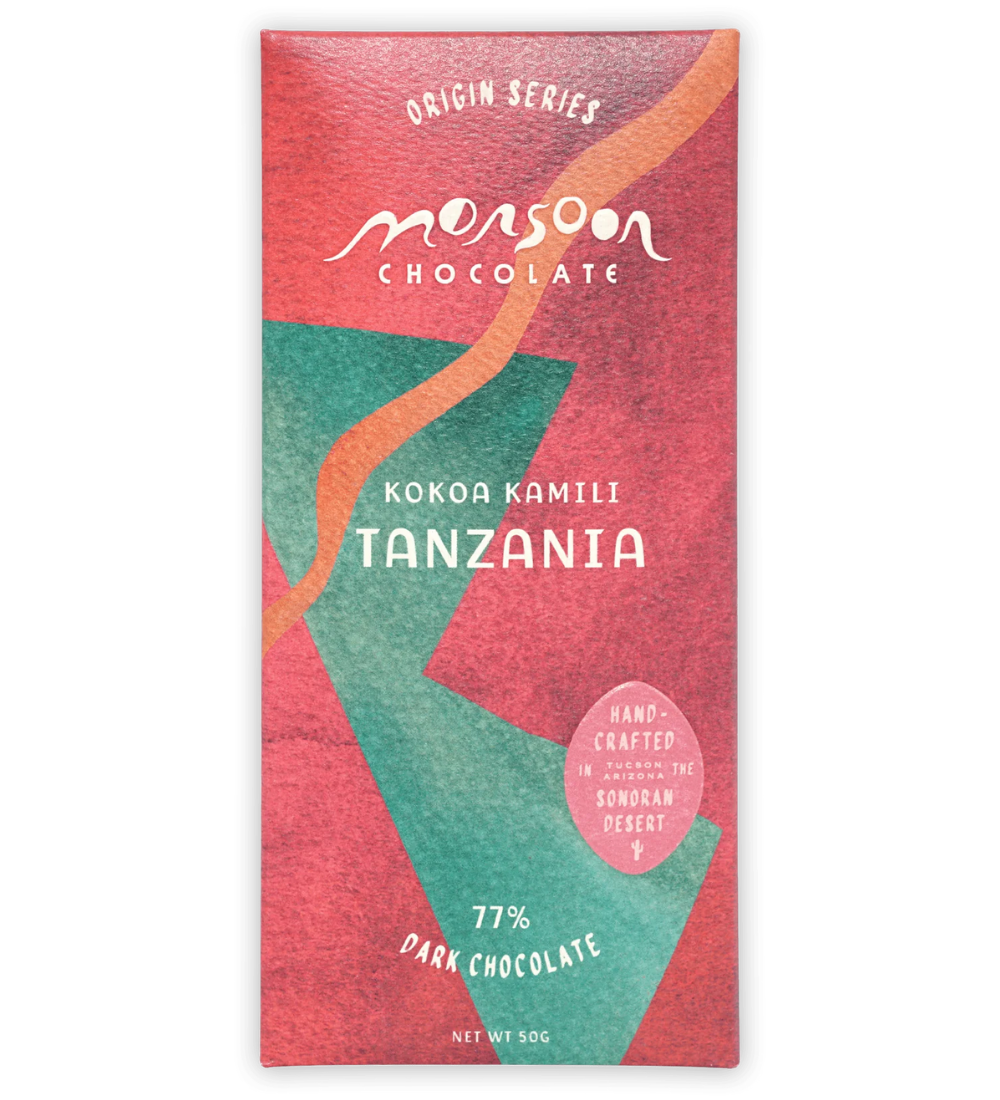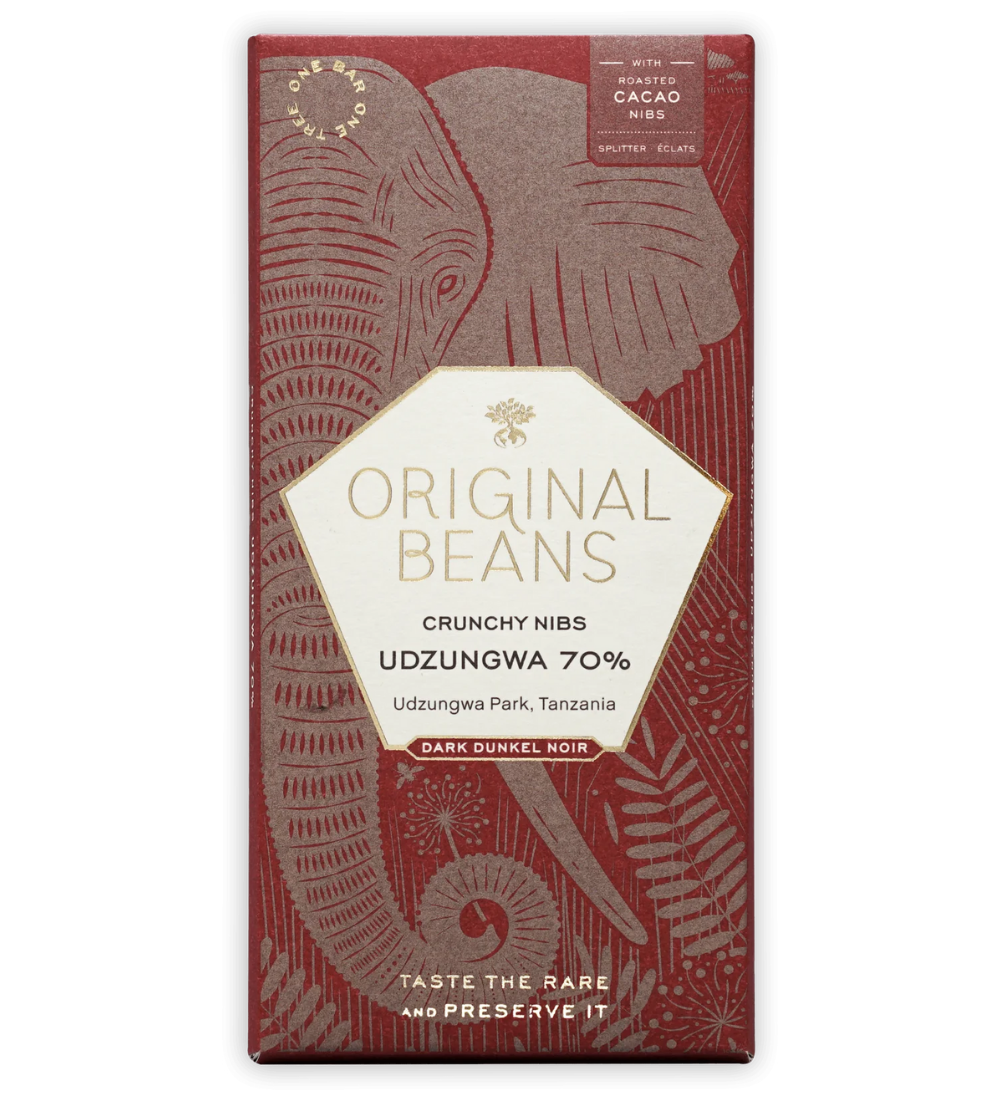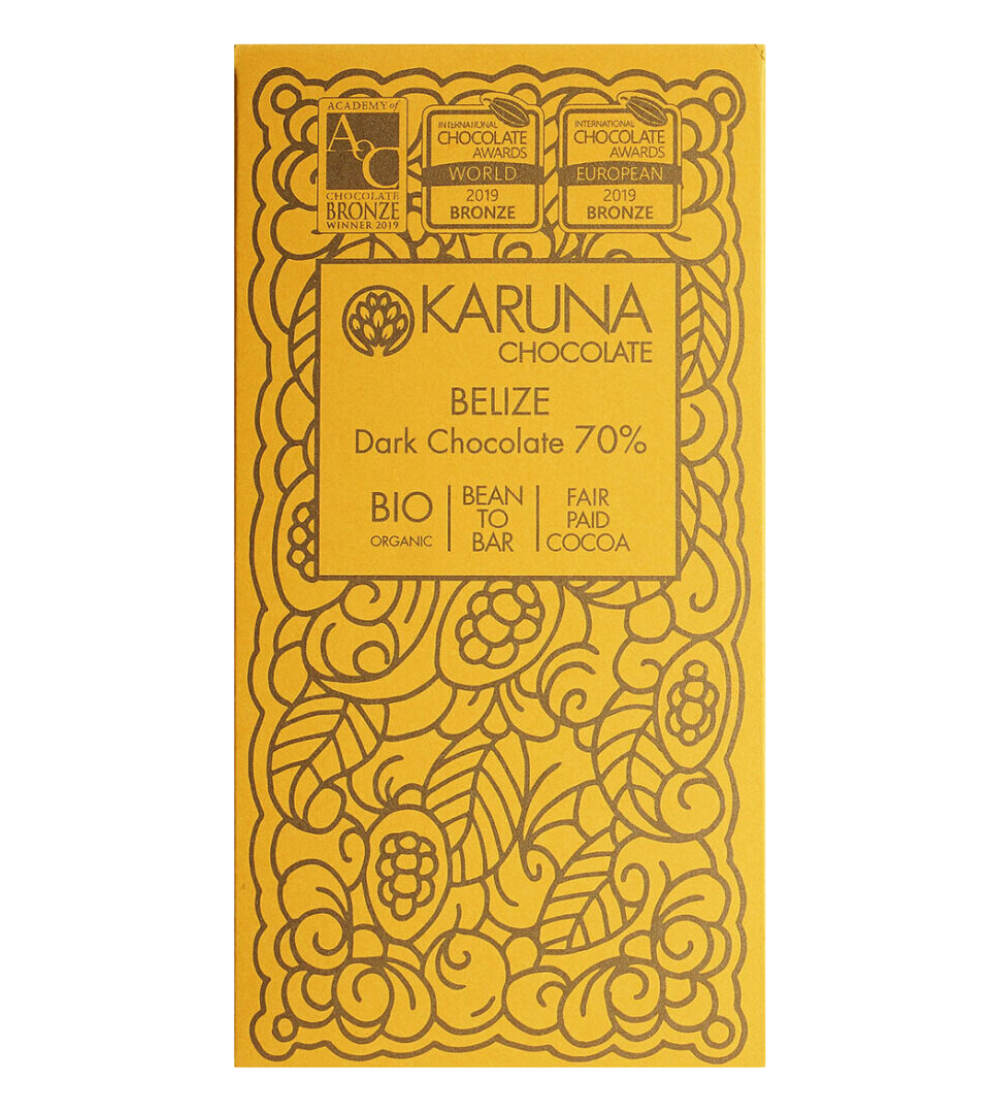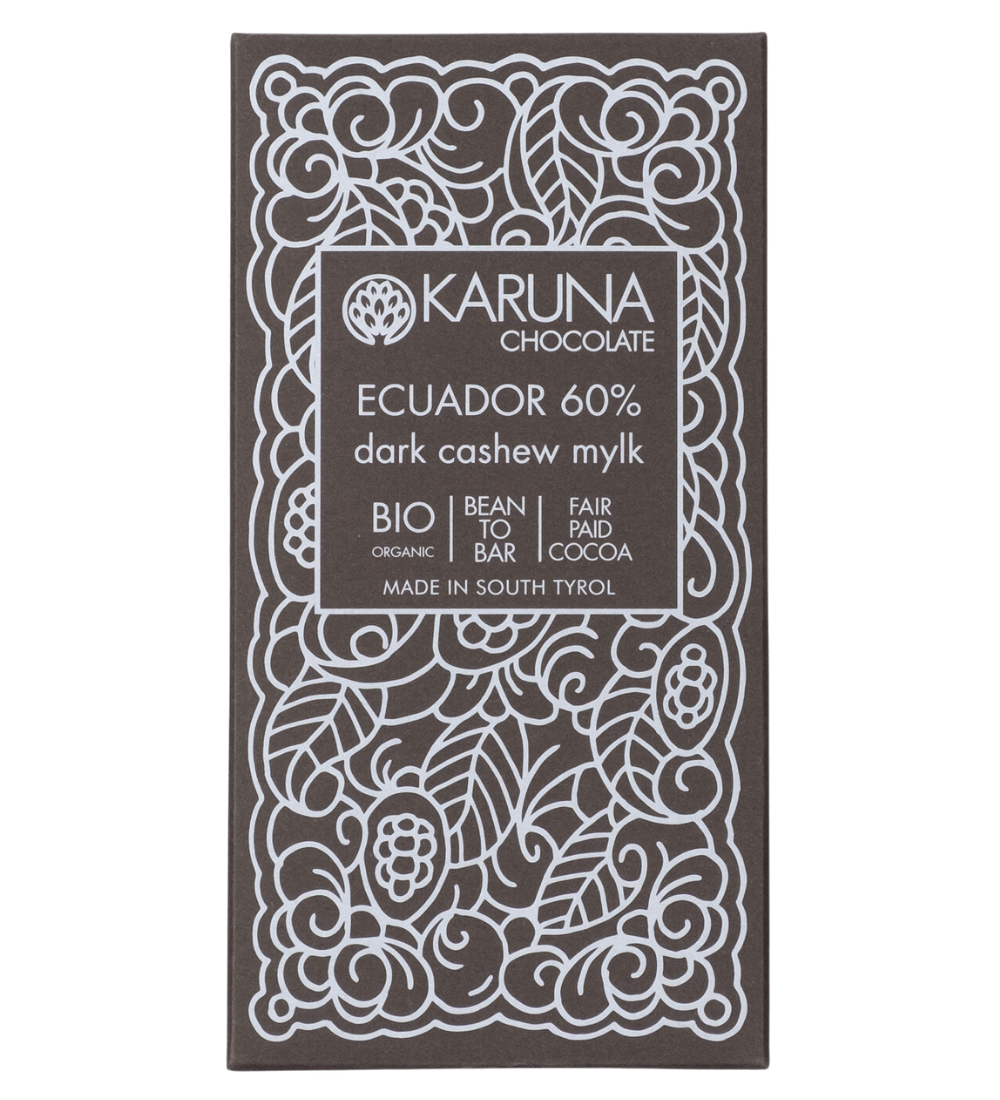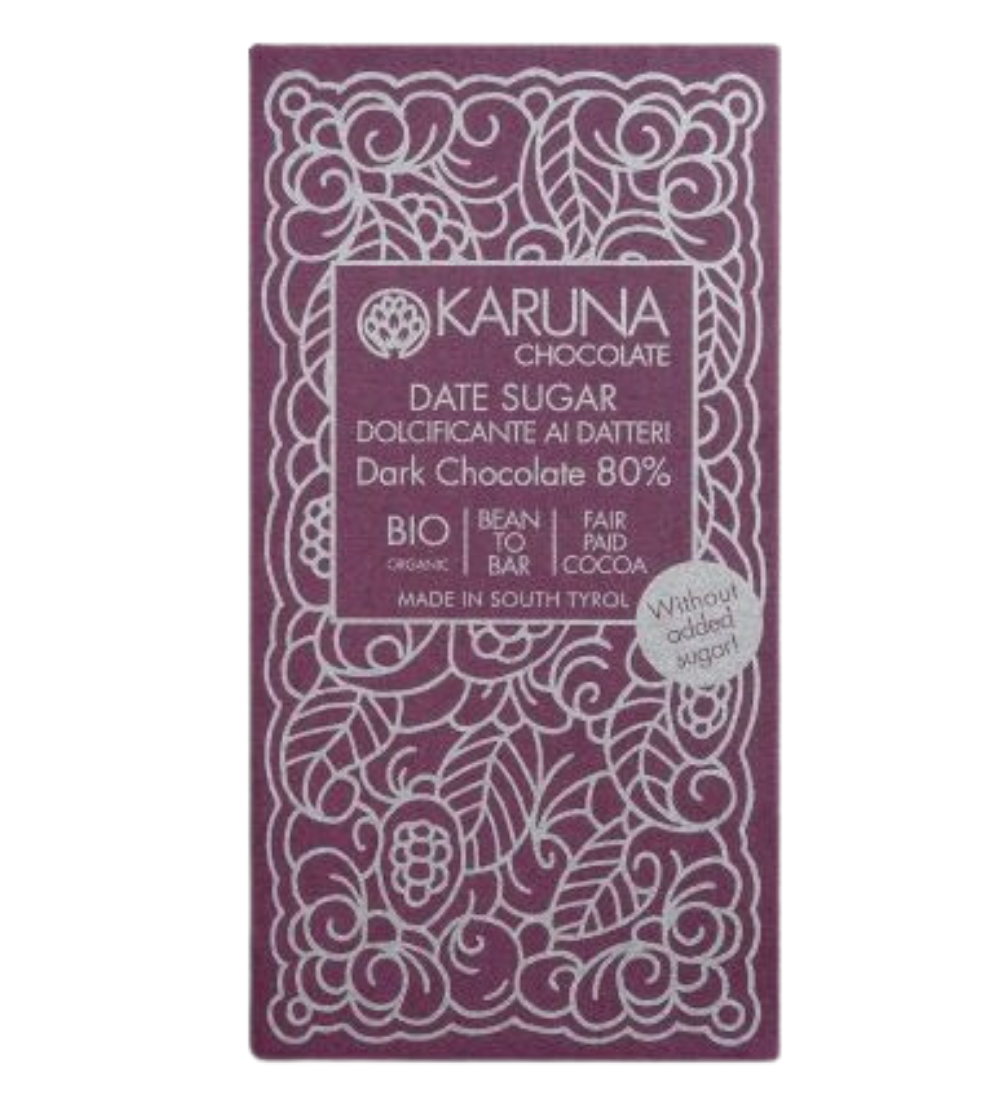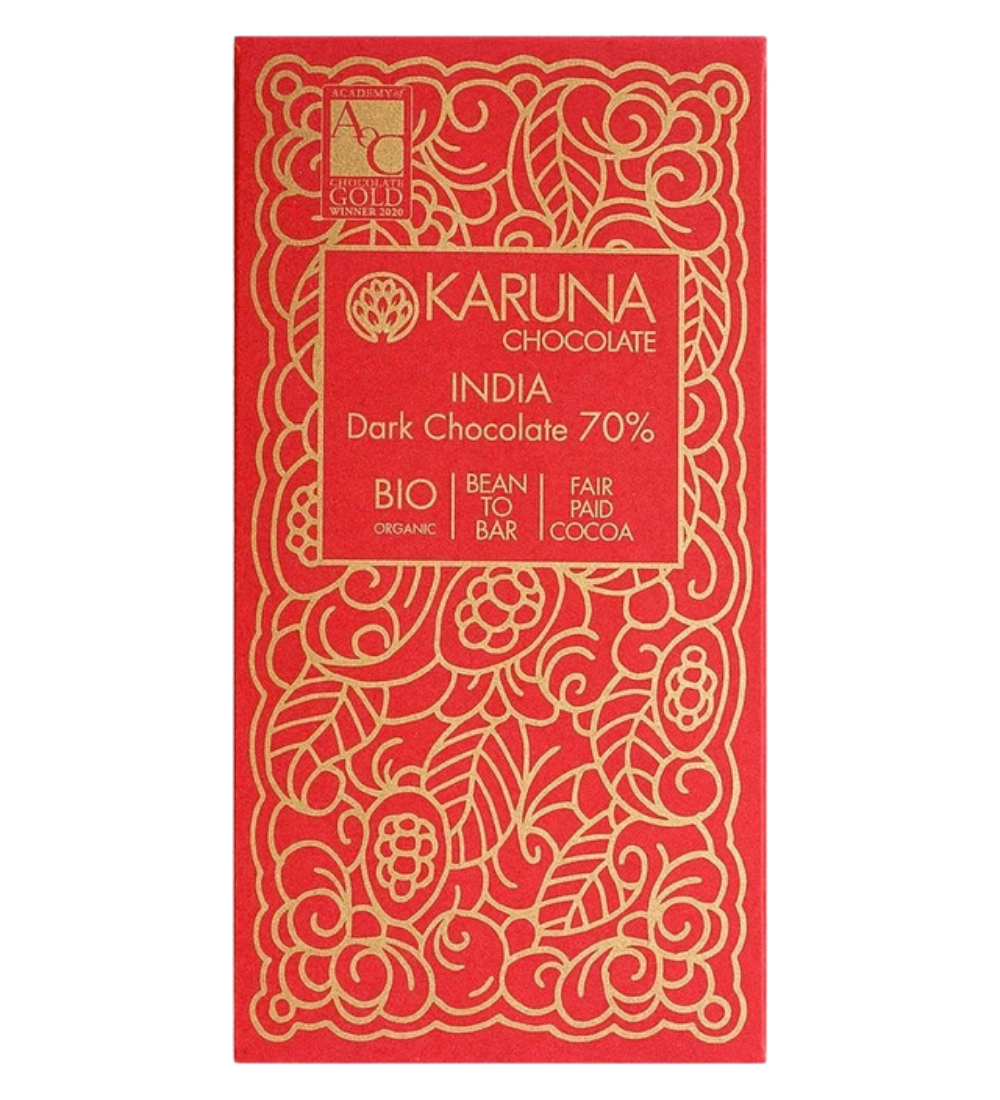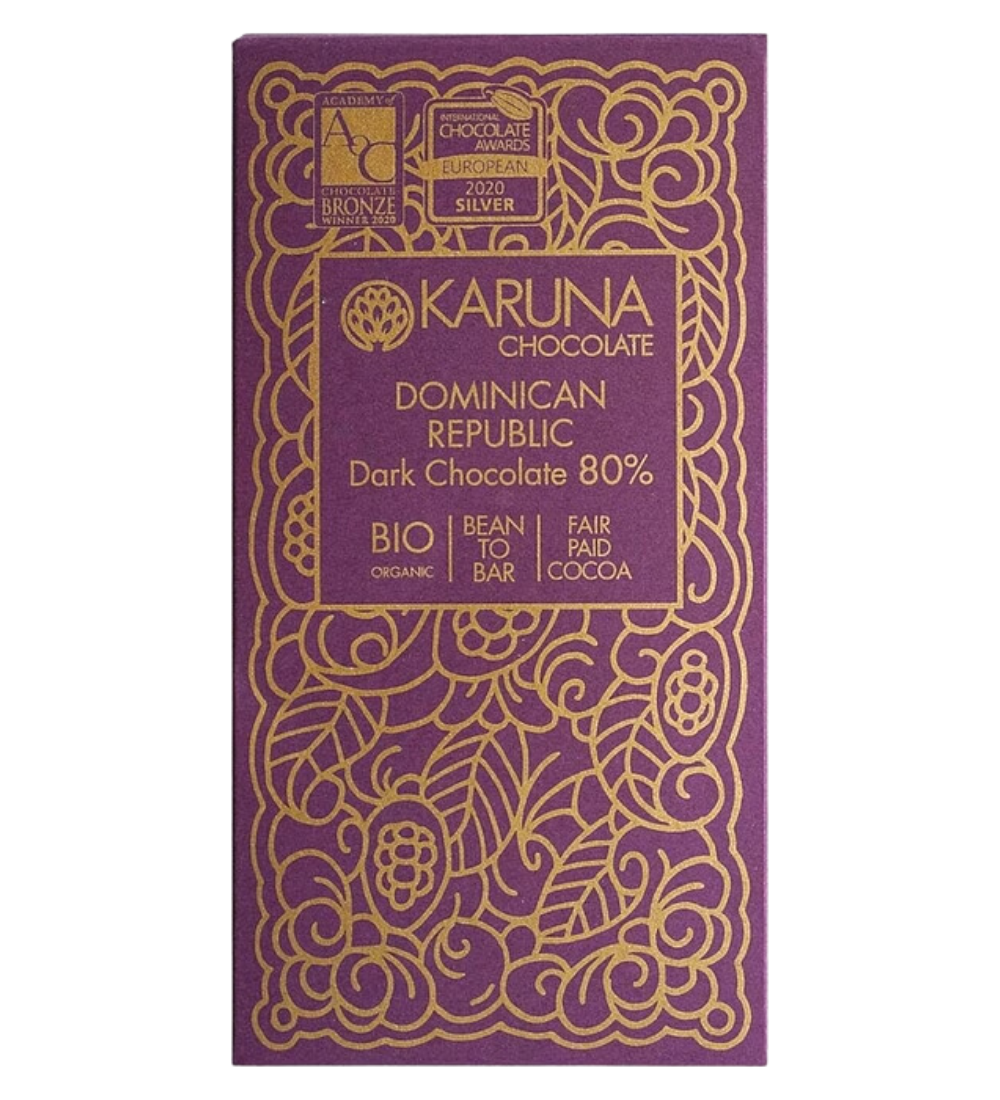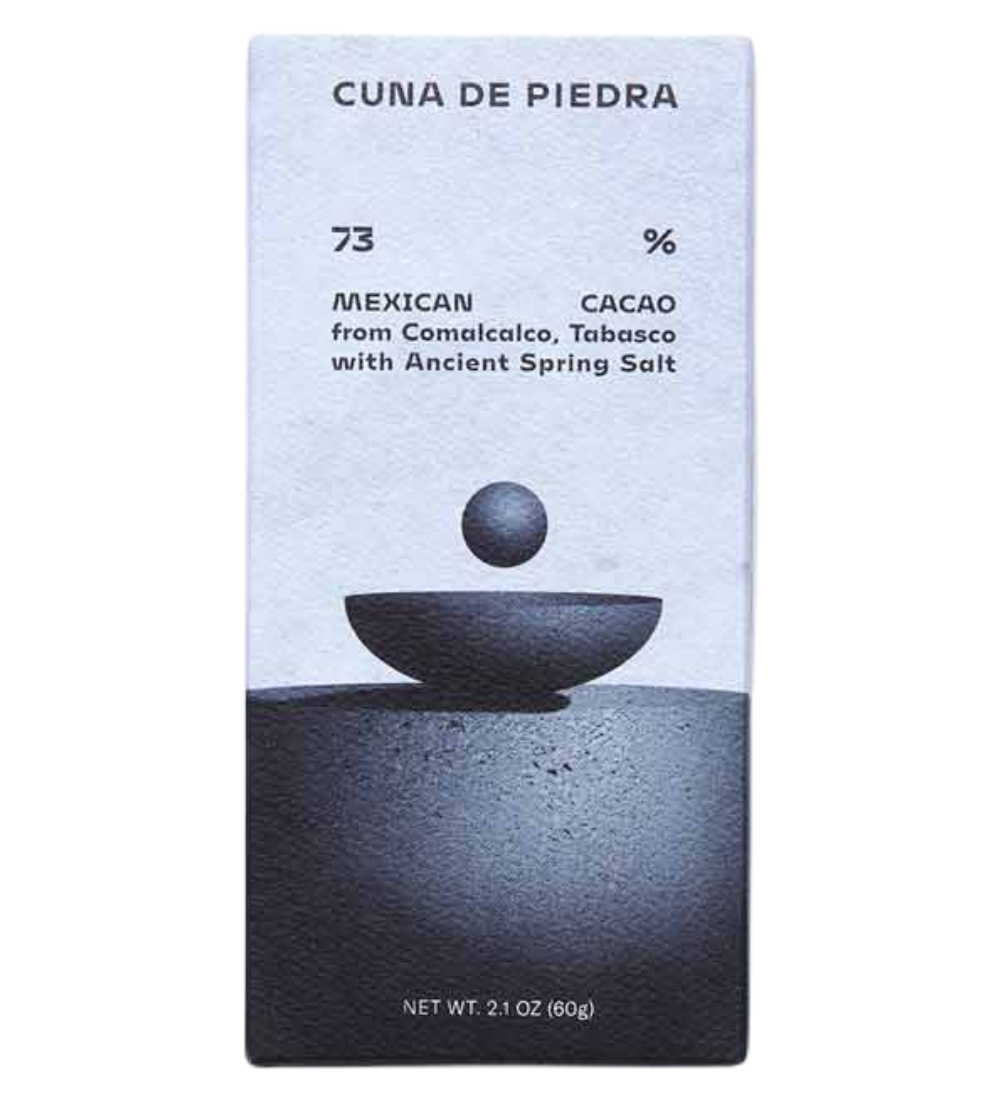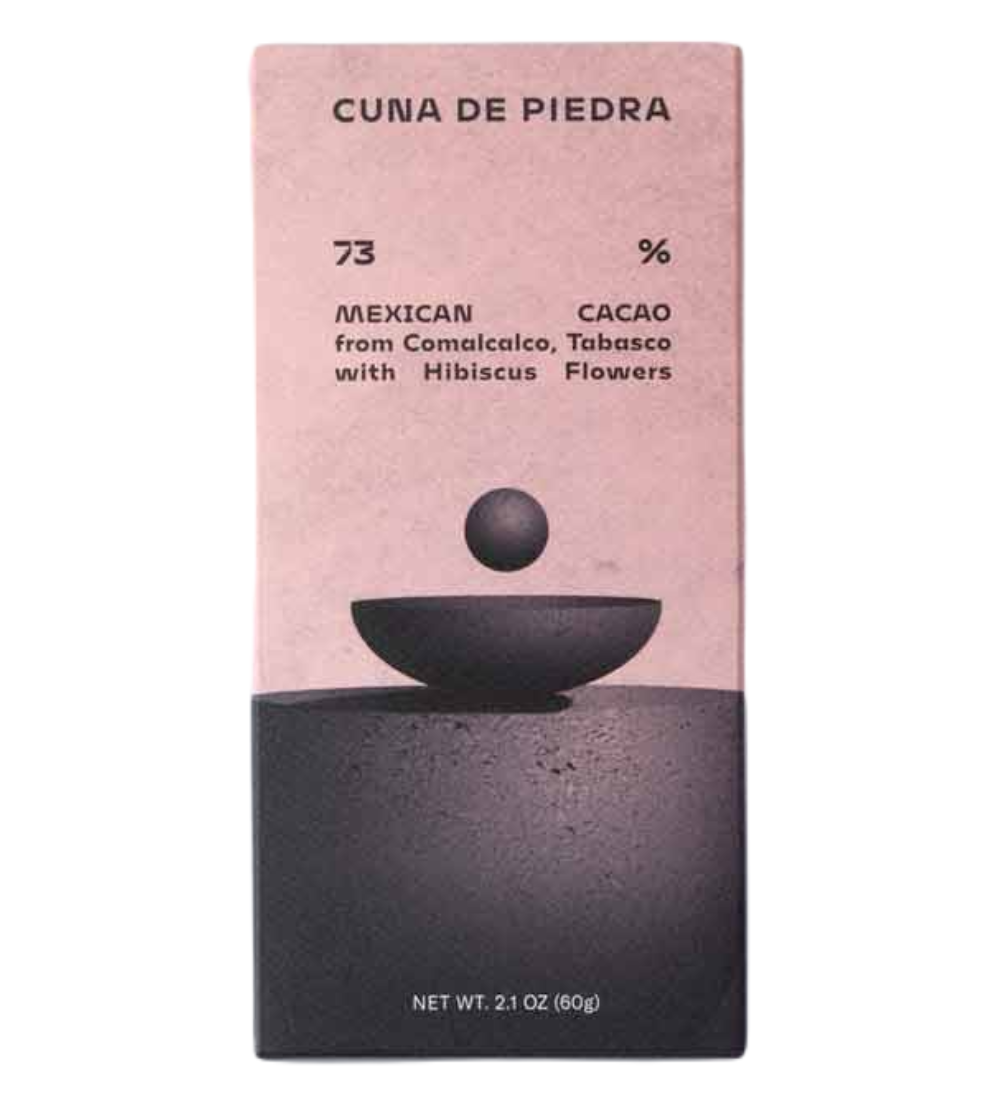Pinus cembra , connu sous le nom de pin parasol suisse ou pin Arolla, prospère dans les régions montagneuses des Alpes et des Carpates en Europe, y compris dans le Tyrol du Sud où est basée Karuna. Les graines comestibles de l'arbre sont cultivées depuis l'Antiquité et revêtent une importance culturelle dans les régions alpines, où elles sont traditionnellement utilisées dans la médecine populaire. Cette barre chocolatée contient de l'huile essentielle de pin, extraite par distillation à la vapeur des aiguilles. Souvent appréciée pour son parfum rafraîchissant et censée offrir des effets réchauffants et relaxants, l'huile confère ici une saveur résineuse semblable à celle de la sève avec un caractère concis rappelant l'écorce d'agrumes. Les inquiétudes concernant une intensité écrasante ou excessive doivent être écartées, car le chocolat tanzanien torréfié reste prédominant et l'essence de pin est subtilement intégrée.
Karuna Pin Parasol 70%
Origine du cacao : Tanzanie
Pays producteur : Italie
Poids : 60g
Adding product to your cart
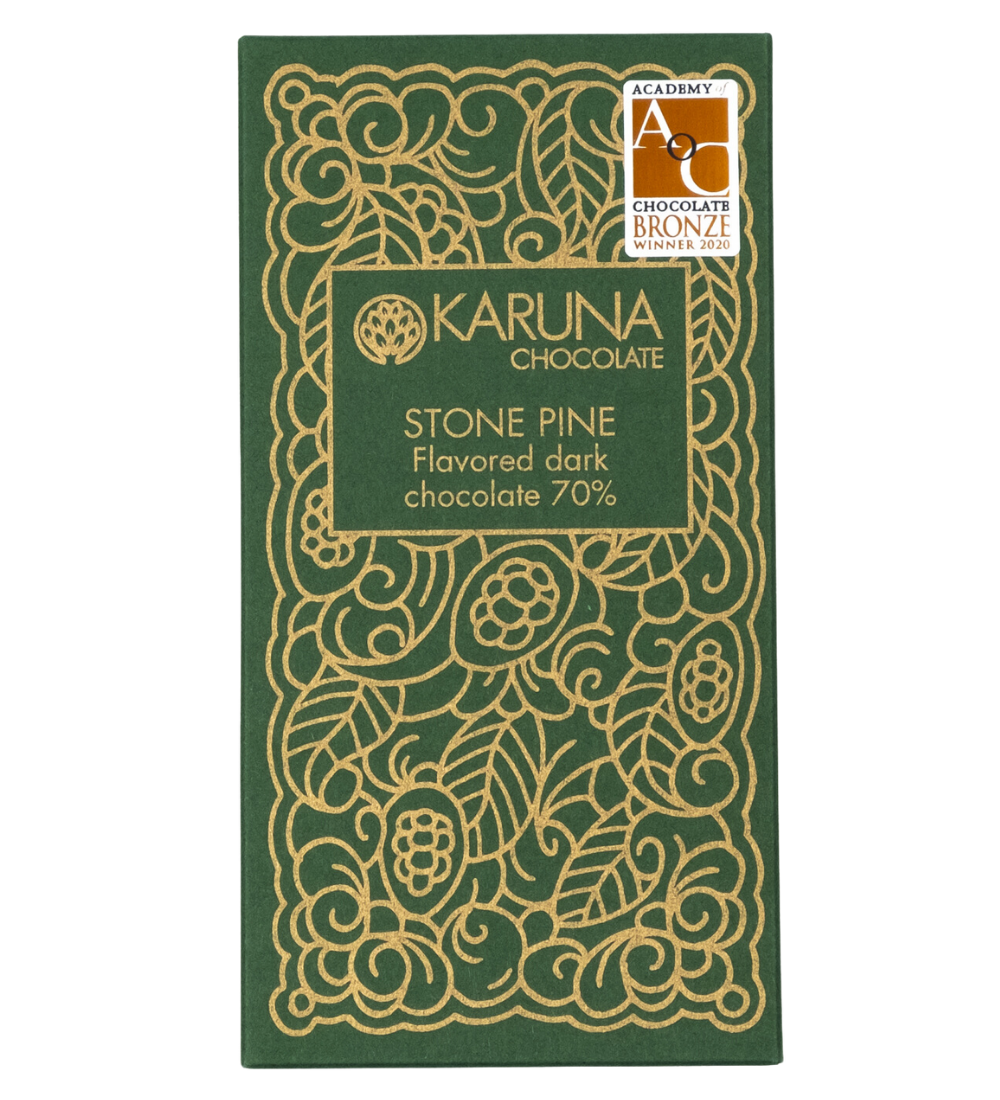
Karuna Pin Parasol 70%
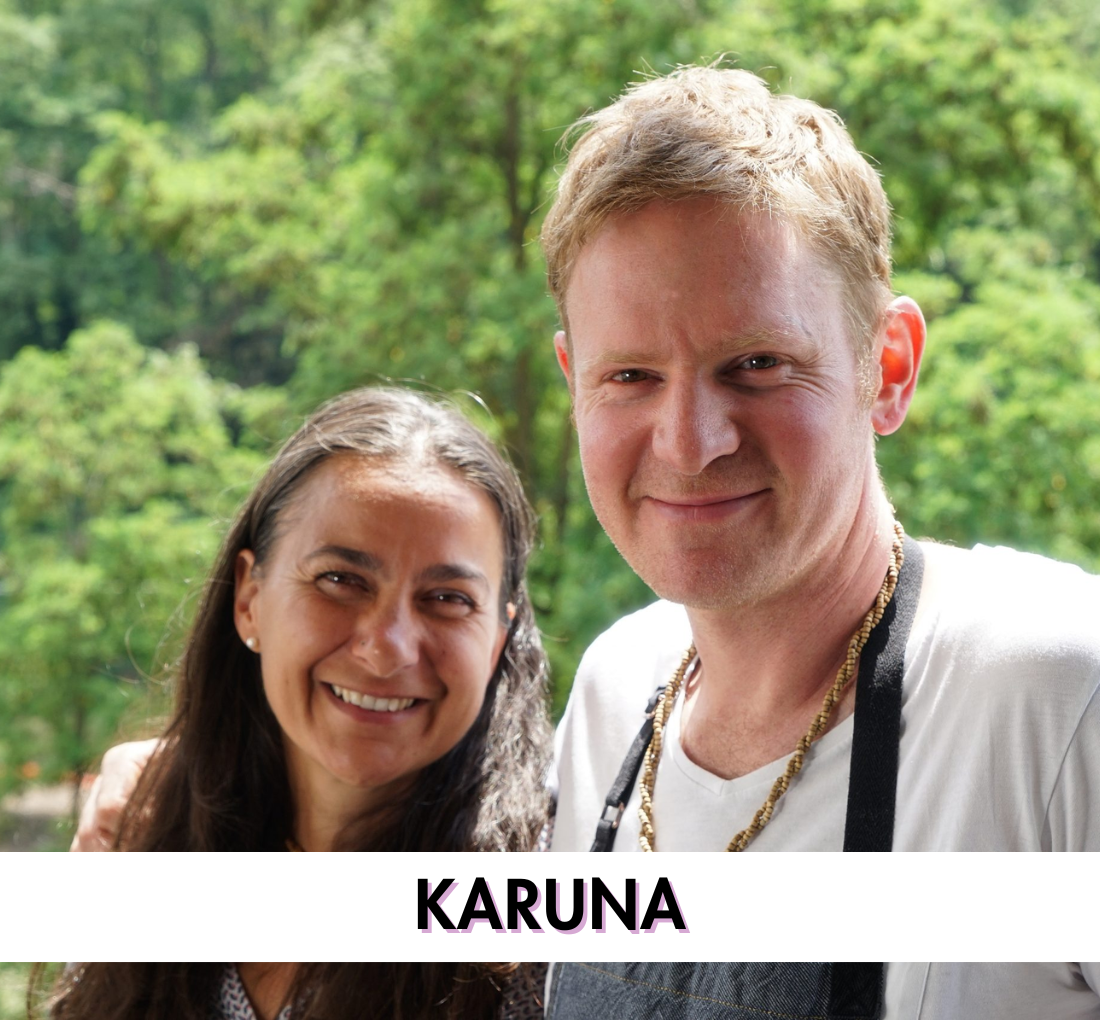
Katya and Armin, the couple behind Karuna, operate from the heart of the Italian Alps, but their journey with chocolate began in a very different place: southern India (an inspiration evoked in the beautiful shapes on their bars and packaging). There, they were introduced to locals growing and producing cocoa, which sparked their curiosity. They soon learned about hobbyists in America making single-origin chocolates by hand, a concept that reminded them of how the craft beer renaissance was driven by homebrewers, which had inspired so much innovation and creativity. Excited by the prospect of a new hobby, Katya and Armin began making chocolate using basic tools. Upon returning to Italy, they found only a few artisan manufacturers in Europe making the kind of chocolate they desired. Undeterred, they decided to follow in the footsteps of the homebrewers and create the chocolate they wanted themselves. Thus, Karuna Chocolate was born.
Achetez plus KarunaLocated within the Morogoro Region, the Kilombero district is situated in a vast floodplain, bounded by the Kilombero River in the southeast and the Udzungwa Mountains in the northwest, part of which is protected by a national park renowned for its diverse bird and primate species, as well as its unique population of savannah elephants. Unfortunately, increased deforestation has led to heightened human-elephant interactions, exacerbating the impact of elephant poaching since a majority of the district's inhabitants are subsistence farmers, cultivating maize and rice. Other economic sources are teak wood and sugar-cane plantations. The region is rising to prominence on the international scene thanks to the Kokoa Kamili Cooperative, which has become a world leader in transparency, fairness, and organic farming practices, with 99% of the area’s cocoa farming being organic. Their facility is located approximately sixty kilometers from the nearest tarred road or electricity, and ten to fifteen hours' drive from Dar es Salaam, Tanzania's main city and closest international airport, offering a glimpse of true rural African life.
